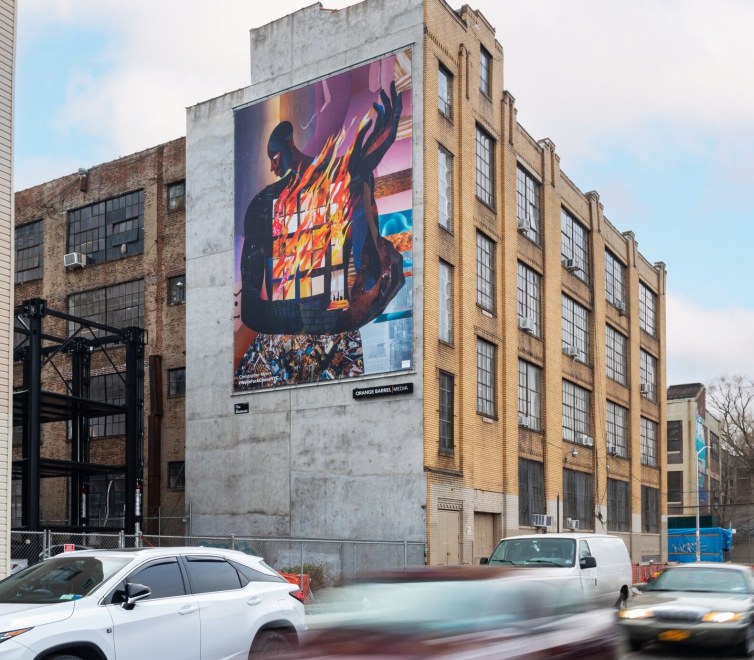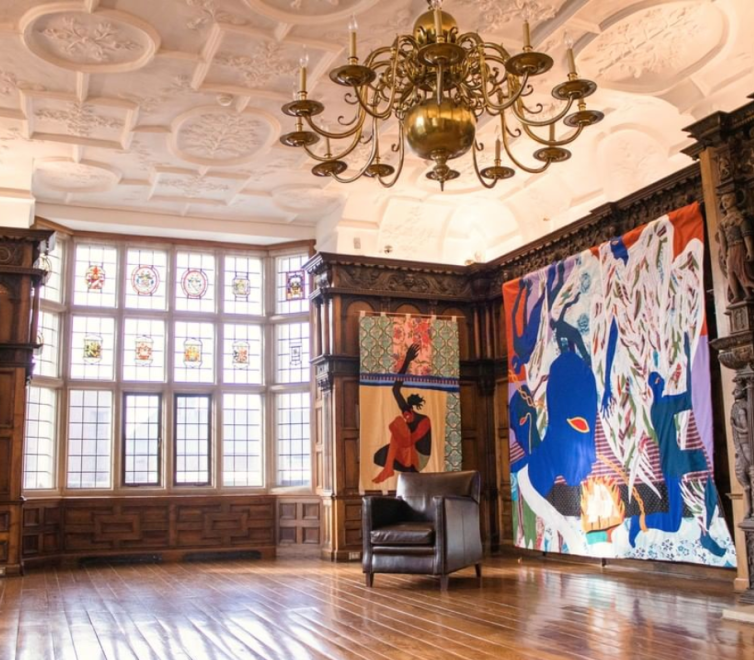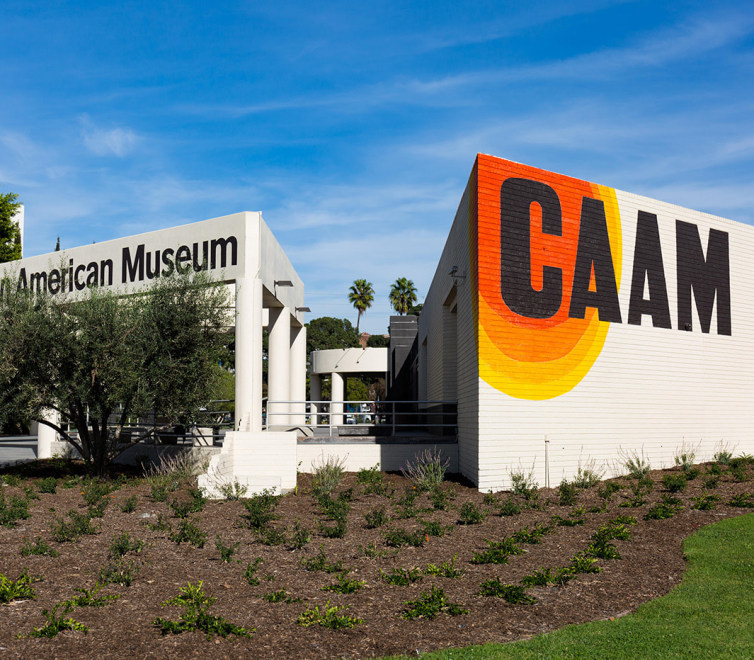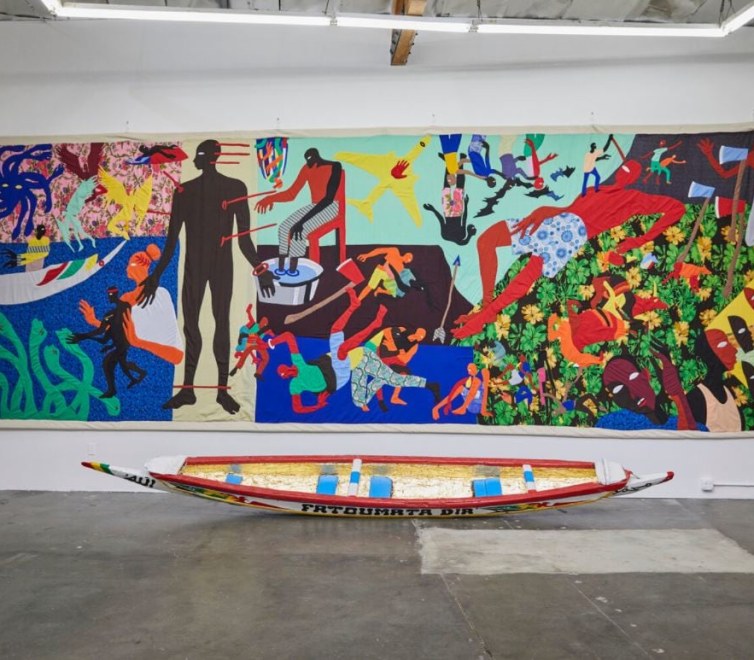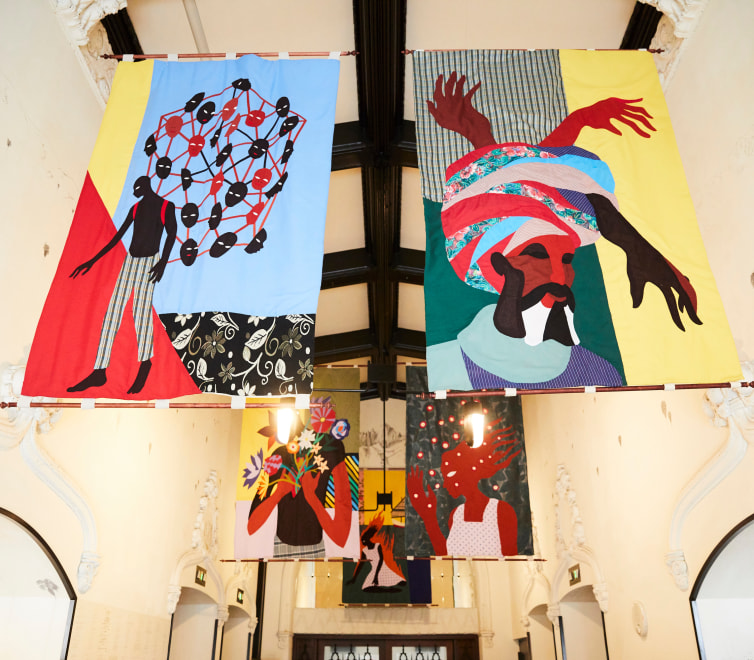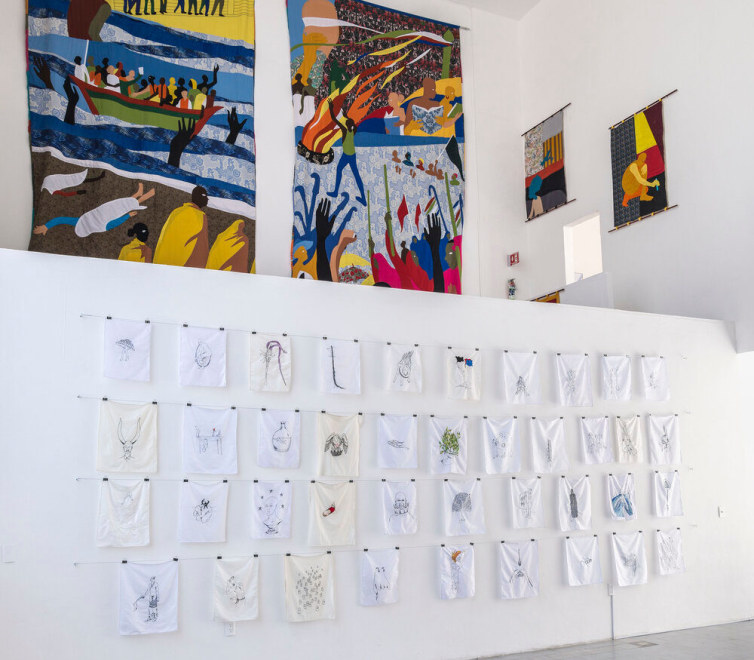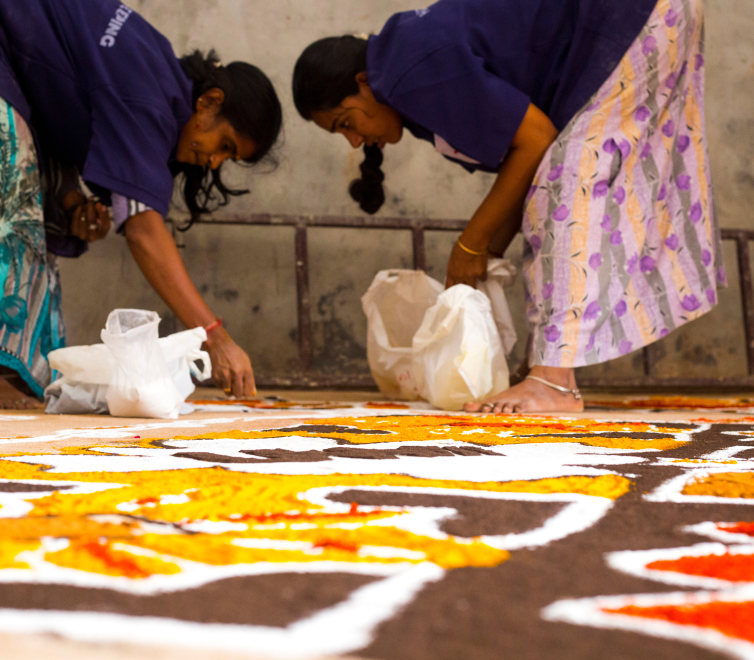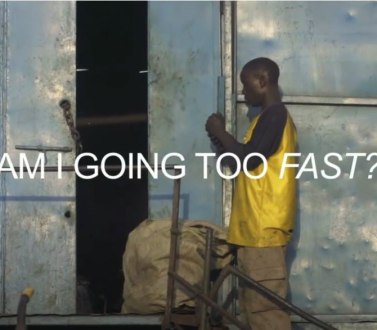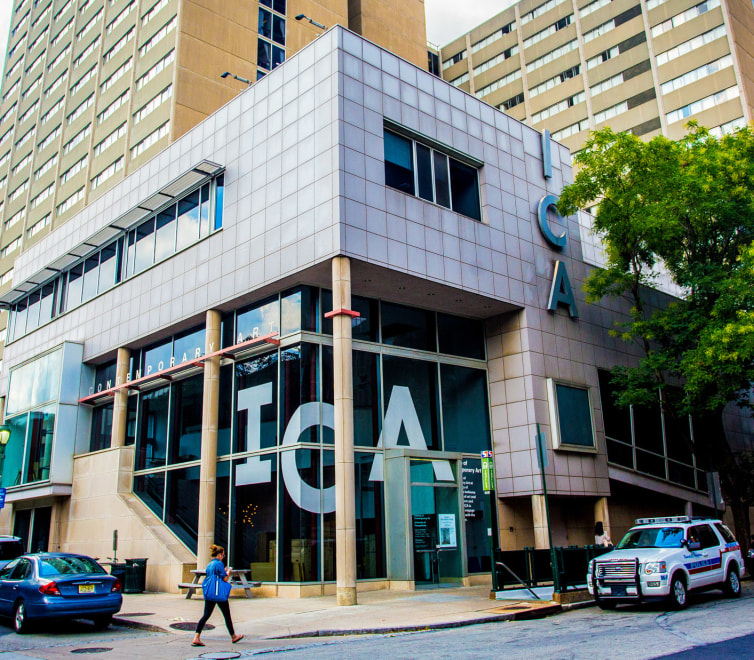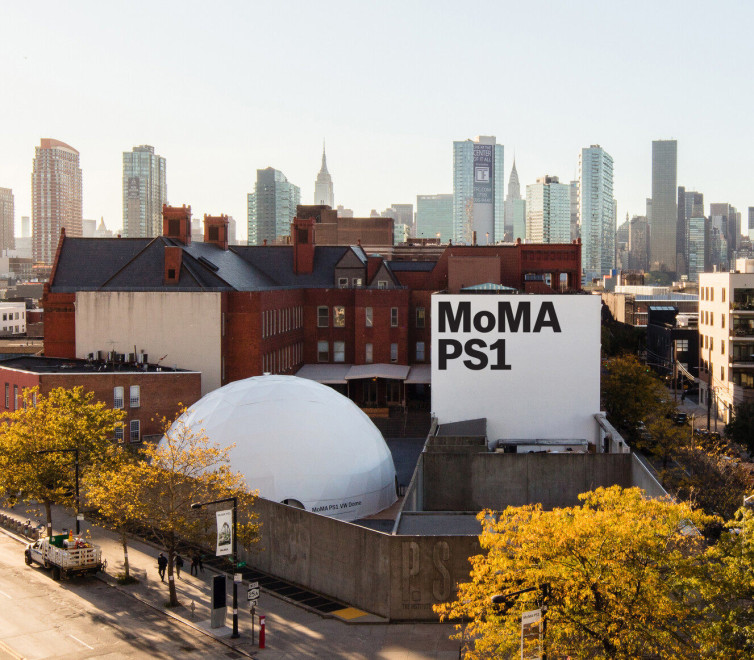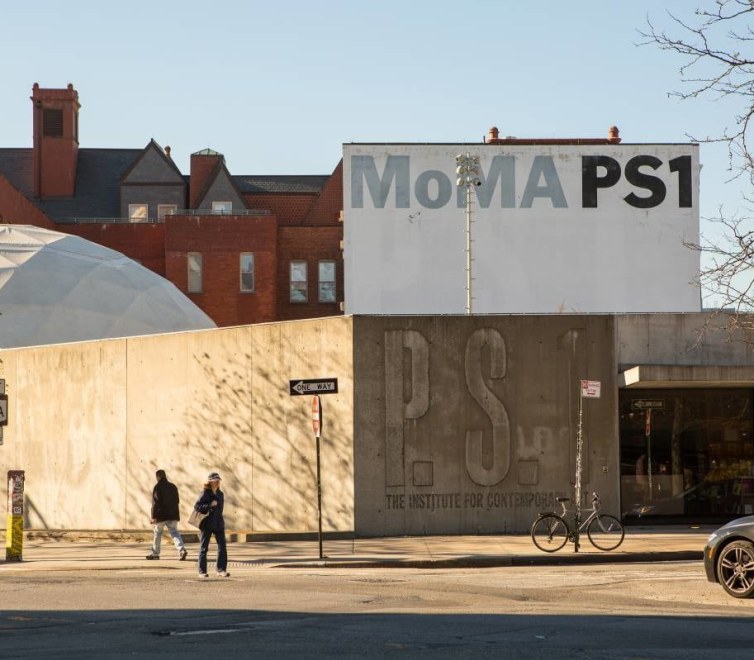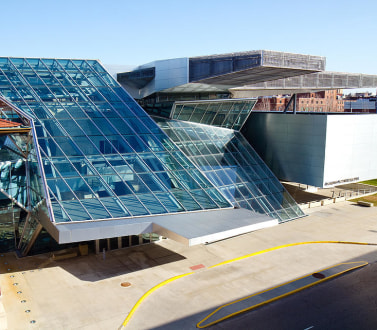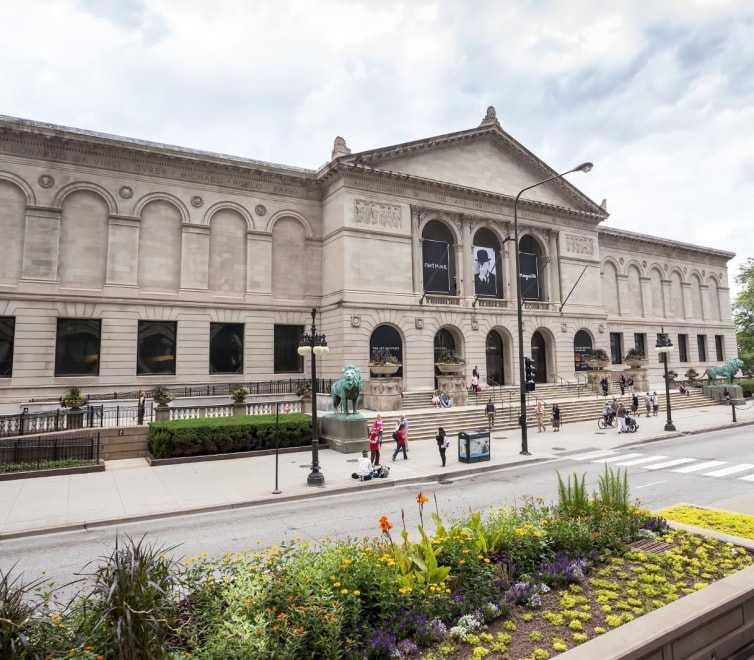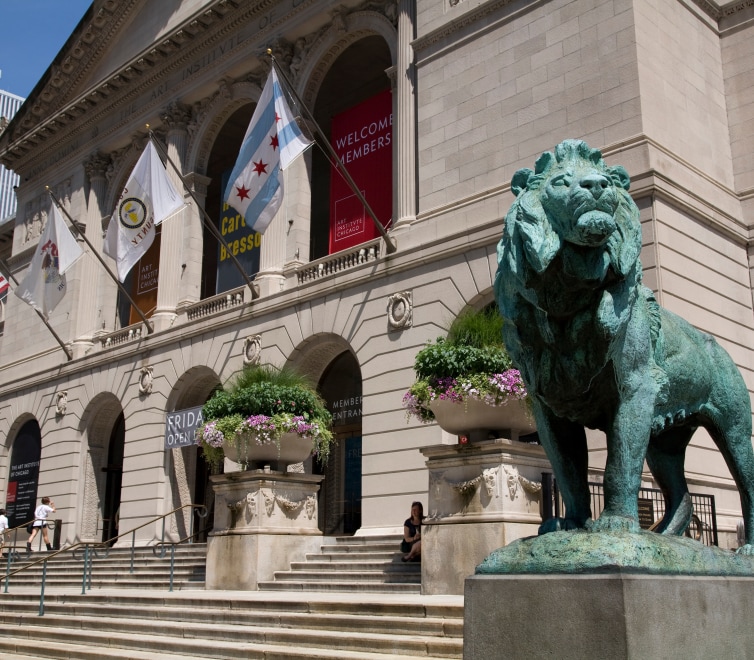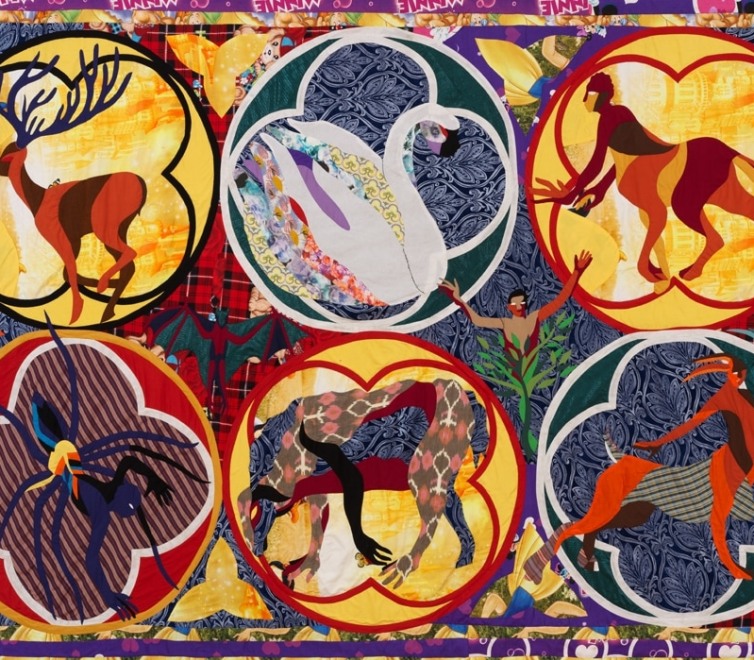
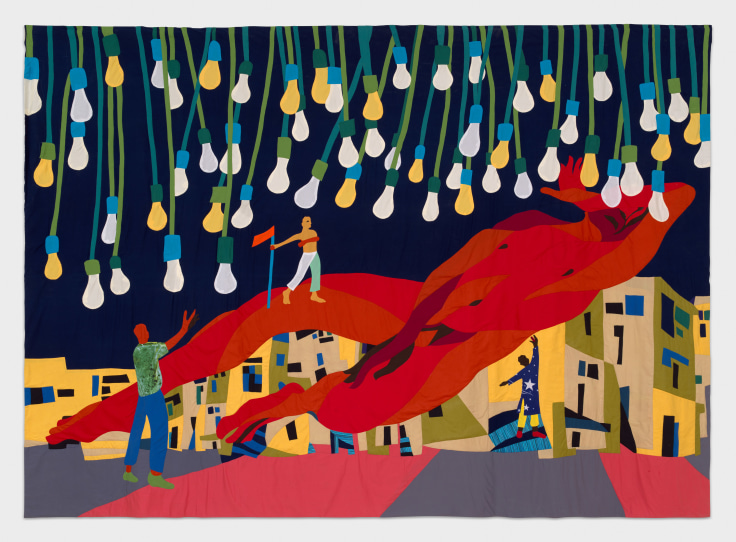
CHRISTOPHER MYERS
Polyphemus (I am nobody), 2023
Appliqué textile
120 x 168 1/4 in
304.8 x 427.4 cm
JCG15722
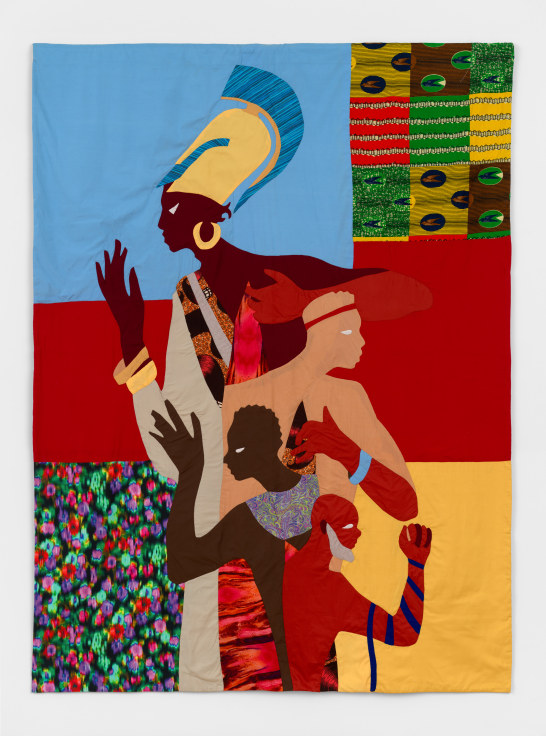
CHRISTOPHER MYERS
Athena in Disguises: Mentor, Telemachus, Mentes (all the masks you must wear), 2023
Appliqué textile
108 1/2 x 81 1/4 in.
275.6 x 206.4 cm
JCG15415
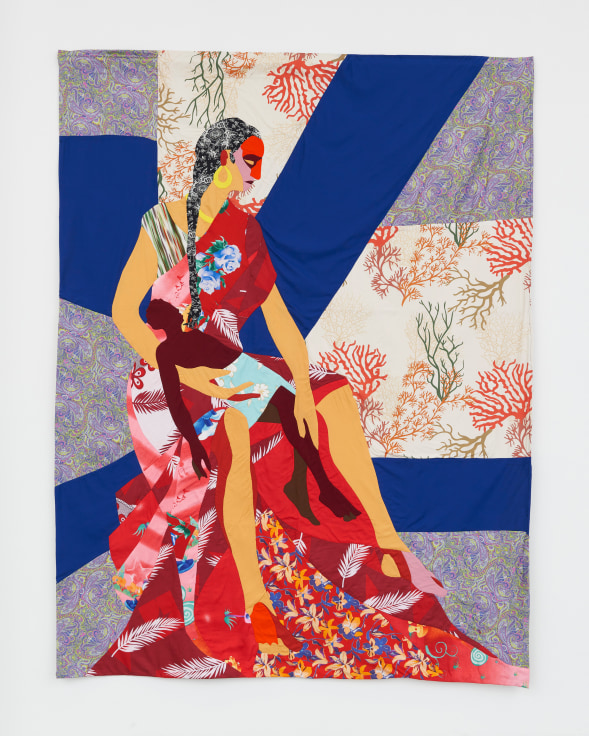
CHRISTOPHER MYERS
The Comfort of Calypso (what does comfort look like, the parks of queens), 2023
Appliqué textile
96 x 72 in.
243.8 x 182.9 cm
JCG15720
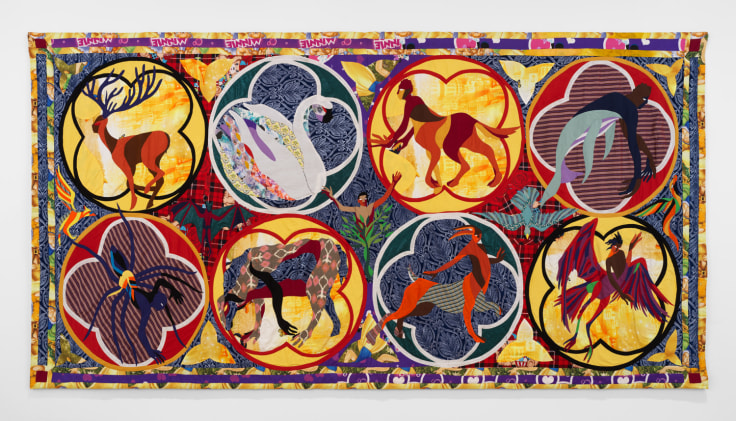
CHRISTOPHER MYERS
Ovide Moralise, 2023
Appliqué textile
113 1/2 x 221 in
288.3 x 561.3 cm
JCG15215
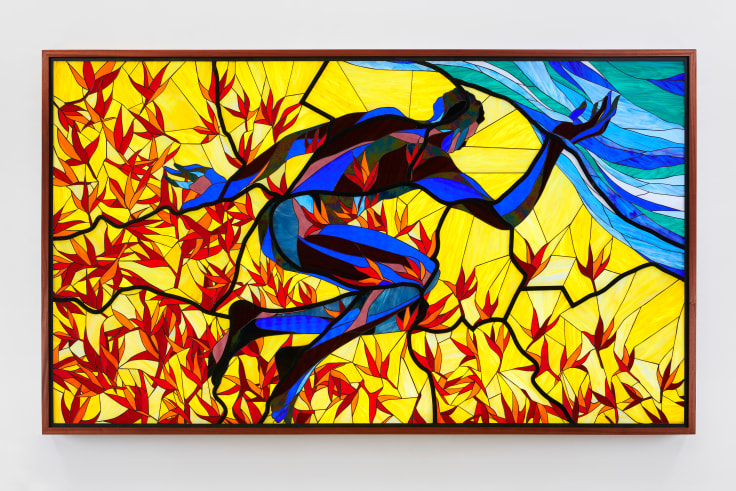
CHRISTOPHER MYERS
The Hero Slept, 2023
Stained glass lightbox
85 5/8 x 146 x 5 in
217.5 x 370.8 x 12.7 cm
JCG15412
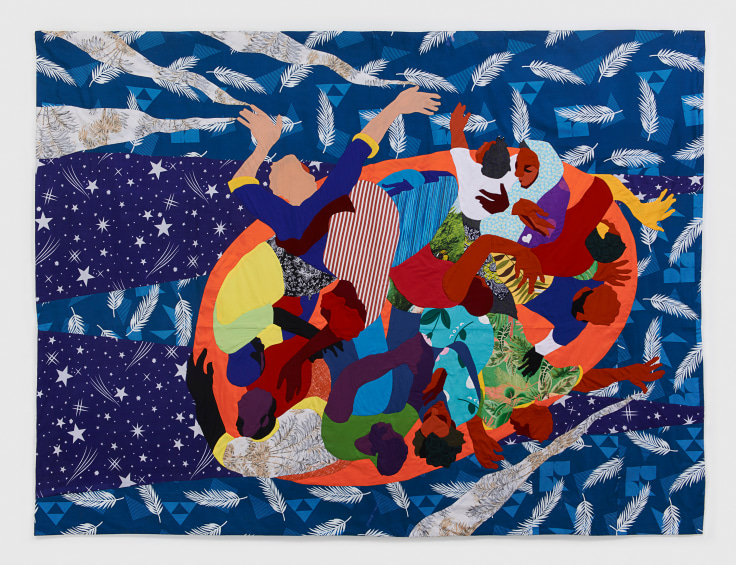
CHRISTOPHER MYERS
Twelve Ships, 2023
Appliqué textile
129 x 97 3/4 in
327.7 x 248.3 cm
JCG15414
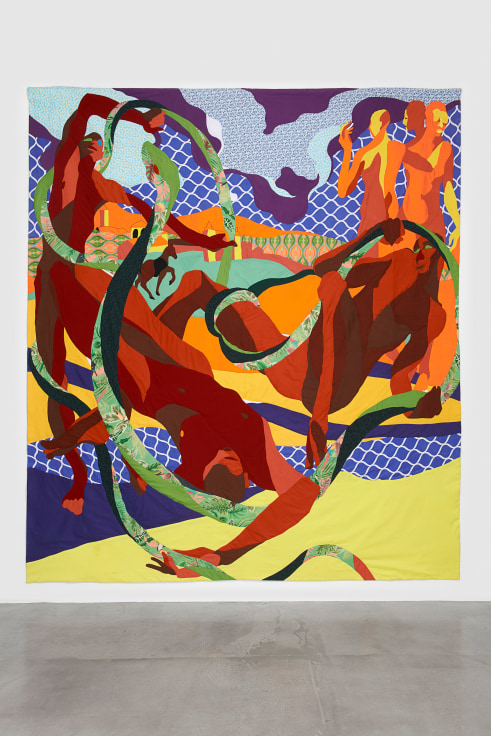
CHRISTOPHER MYERS
Lotus eaters (what becomes a drug), 2023
Appliqué textile
135 x 118 in
342.9 x 299.7 cm
JCG15721
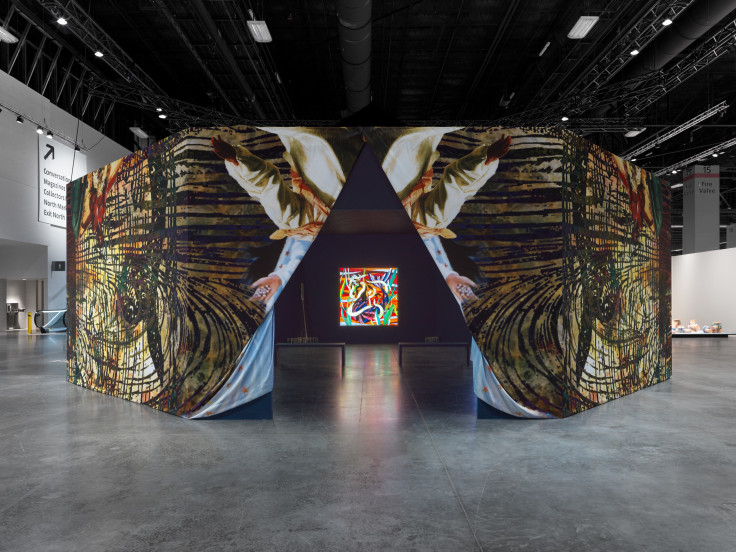
CHRISTOPHER MYERS
Let the Mermaids Flirt With Me, 2022
Suite of 7 stained glass lightboxes
Dimensions variable with installation
JCG14077
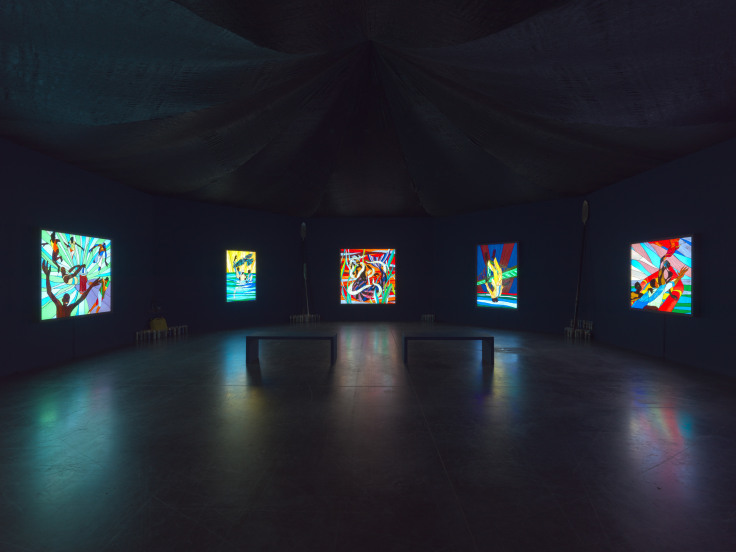
CHRISTOPHER MYERS
Let the Mermaids Flirt With Me, 2022
Interior view
JCG14077
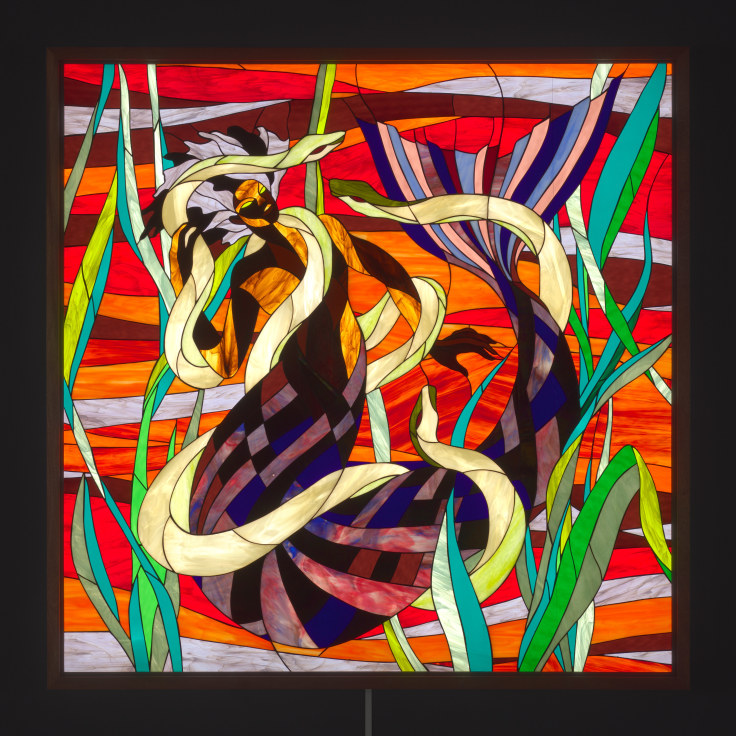
CHRISTOPHER MYERS
Nala Damajanti as Mami Wata as Cymbee, 2022
Stained glass lightbox
77 1/4 x 77 1/4 x 5 in.
196.2 x 196.2 x 12.7 cm
Edition of 1 + 1 AP
JCG14763
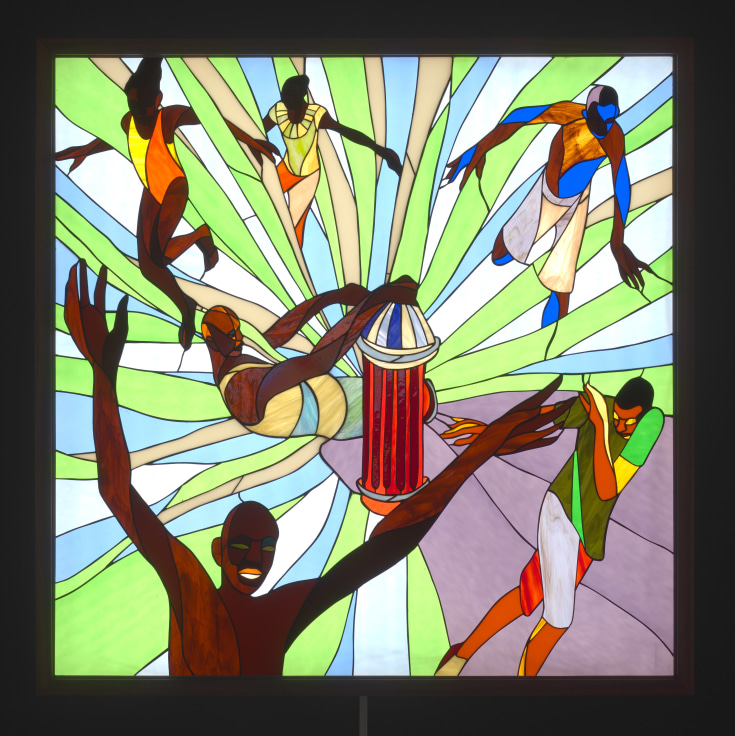
CHRISTOPHER MYERS
Uncapping, 2022
Stained glass lightbox
61 3/8 x 61 3/8 x 5 in.
155.9 x 155.9 x 12.7 cm
Edition of 1 + 1 AP
JCG14767
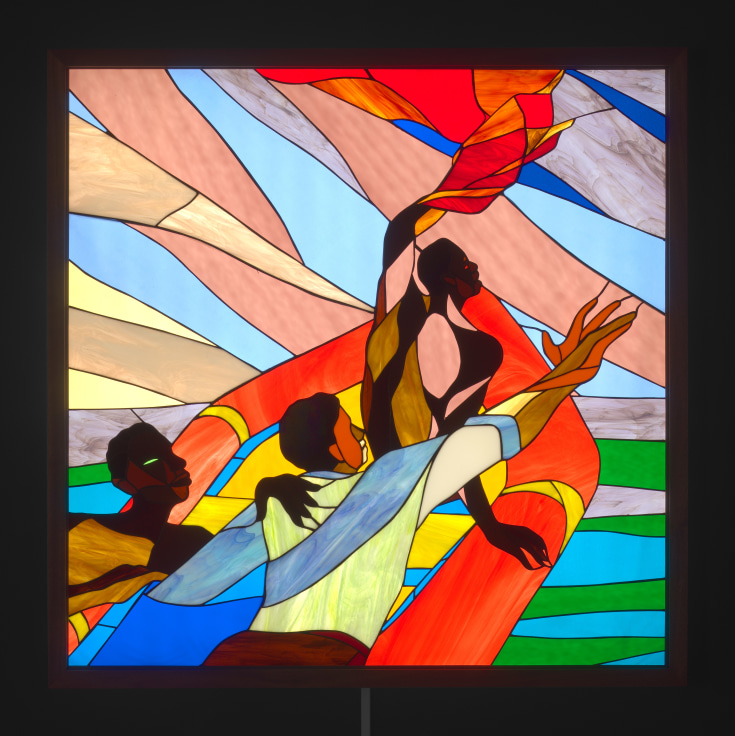
CHRISTOPHER MYERS
Raft, 2022
Stained glass lightbox
53 1/2 x 53 1/2 x 5 in.
135.9 x 135.9 x 12.7 cm
Edition of 1 + 1 AP
JCG14764
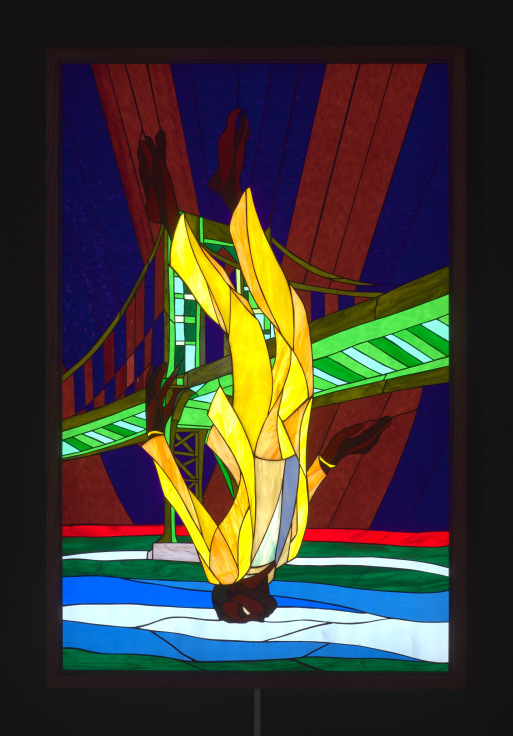
CHRISTOPHER MYERS
Suicide's Note, 2022
Stained glass lightbox
77 1/4 x 50 1/2 x 5 in.
196.2 x 128.3 x 12.7 cm
Edition of 1 + 1 AP
JCG14761
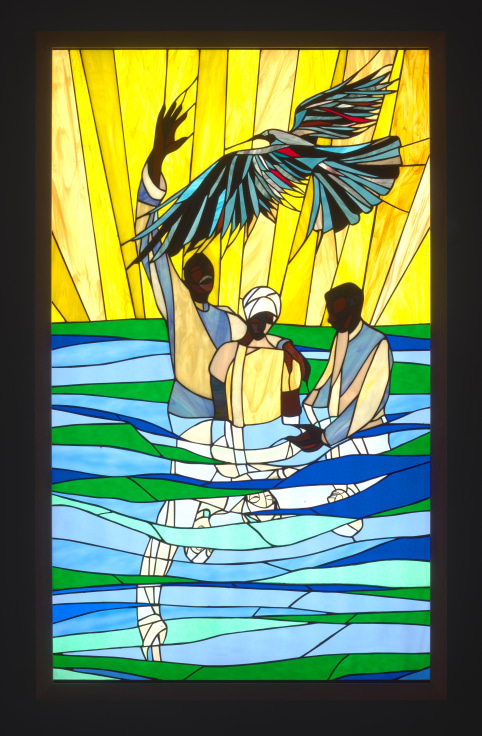
CHRISTOPHER MYERS
Baptism, 2022
Stained glass lightbox
61 3/8 x 37 5/8 x 5 in.
155.9 x 95.4 x 12.7 cm
Edition of 1 + 1 AP (AP 1/1)
JCG14765
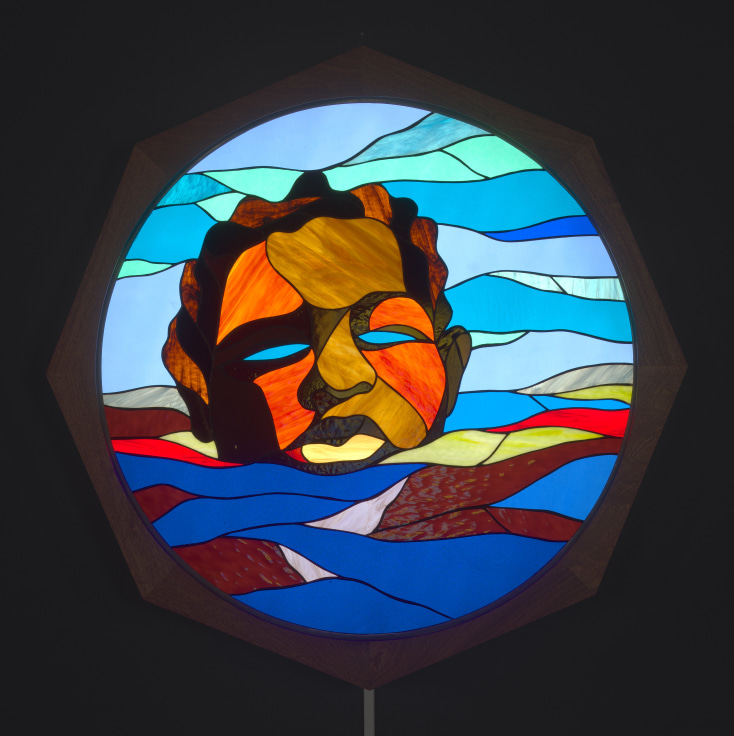
CHRISTOPHER MYERS
Igbo Landing 1, 2022
Stained glass lightbox
43 x 43 x 5 in.
109.2 x 109.2 x 12.7 cm
Edition of 1 + 1 AP
JCG14768
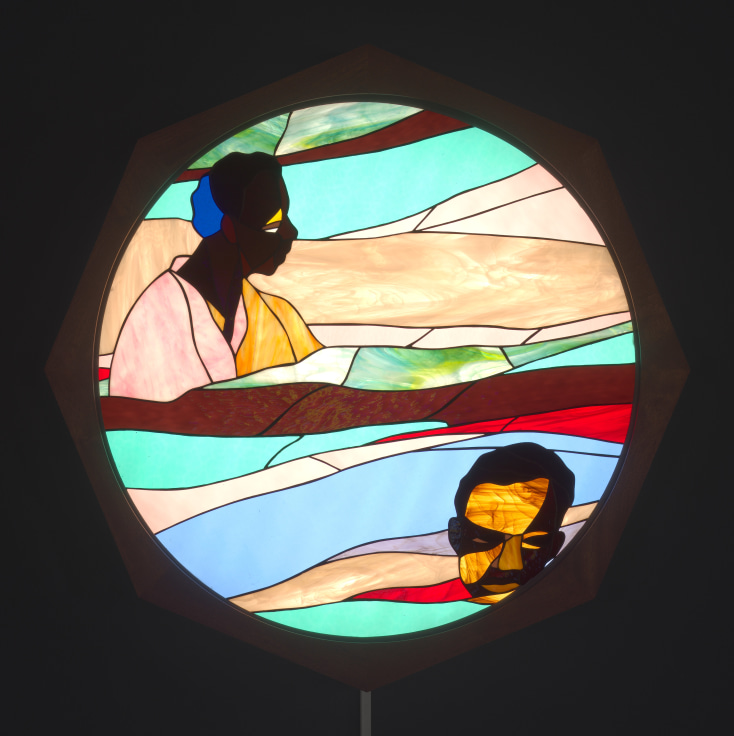
CHRISTOPHER MYERS
Igbo Landing 4, 2022
Stained glass lightbox
43 x 43 x 5 in.
109.2 x 109.2 x 12.7 cm
Edition of 1 + 1 AP
JCG14815
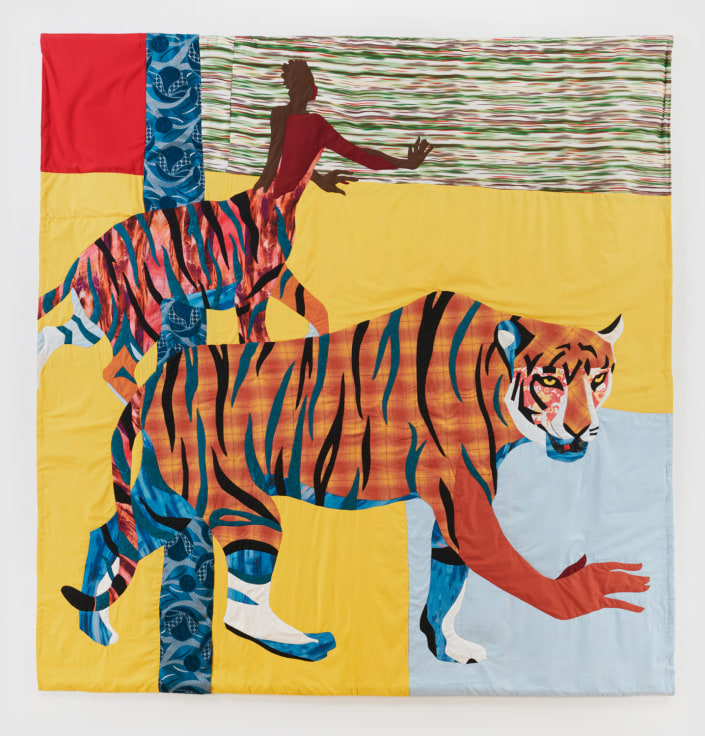
CHRISTOPHER MYERS
Men turning into Tigers, 2022
Appliqué textile
108 x 108 in.
274.3 x 274.3 cm
JCG13299
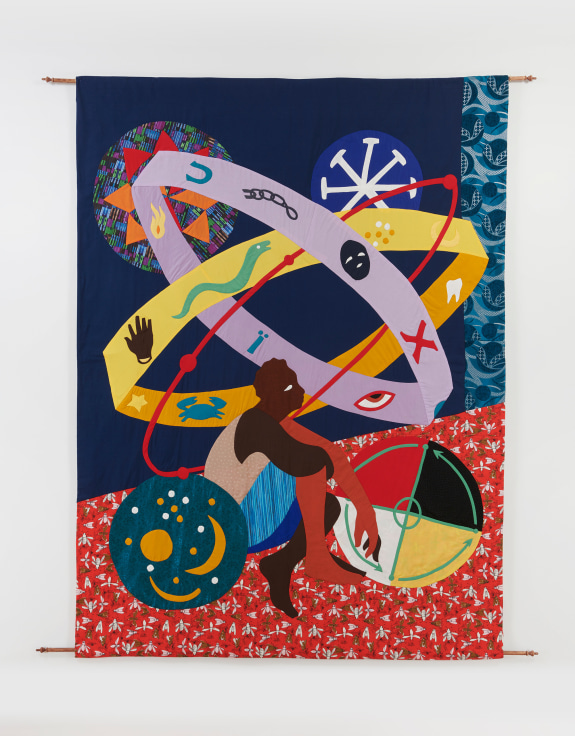
CHRISTOPHER MYERS
Knowledge of the Elements, Revolution of the Planets, 2022
Appliqué textile
106 1/2 x 80 3/4 in.
270.5 x 205.1 cm
JCG13288
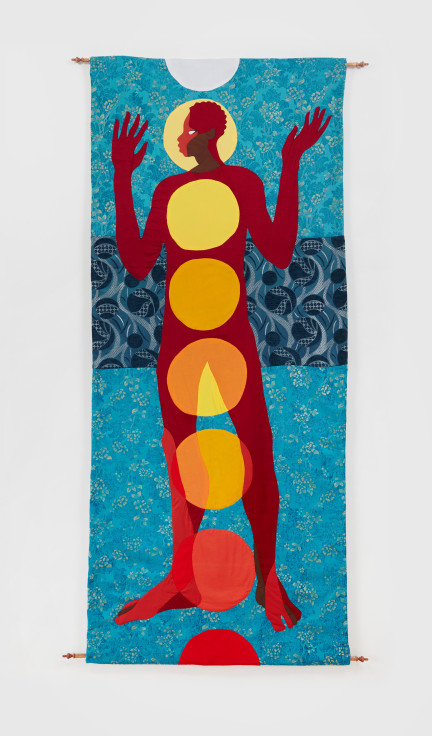
CHRISTOPHER MYERS
The Sun passed through his body, 2022
Appliqué textile
114 x 47 3/4 in.
289.6 x 121.3 cm
JCG13298
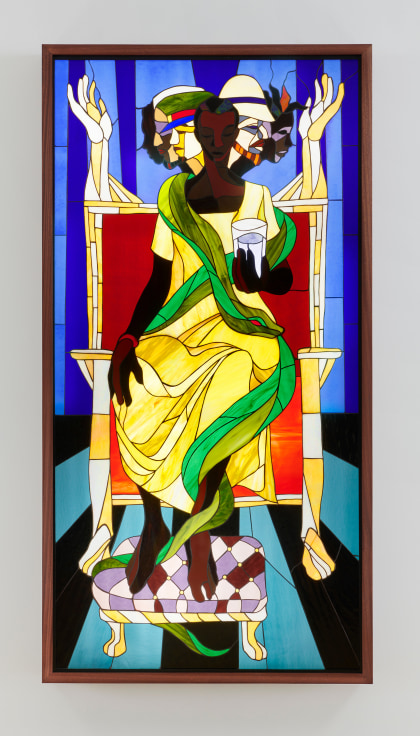
CHRISTOPHER MYERS
Lakwena, 2022
Stained glass lightbox
93 x 47 1/2 x 5 in.
236.2 x 120.7 x 12.7 cm
JCG13283
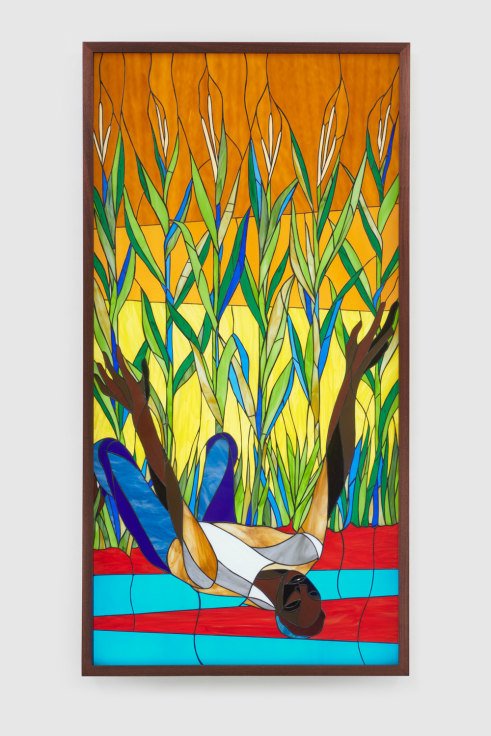
CHRISTOPHER MYERS
Nat Turner, 2022
Stained glass lightbox
93 x 47 1/2 x 5 in.
236.2 x 120.7 x 12.7 cm
JCG13284
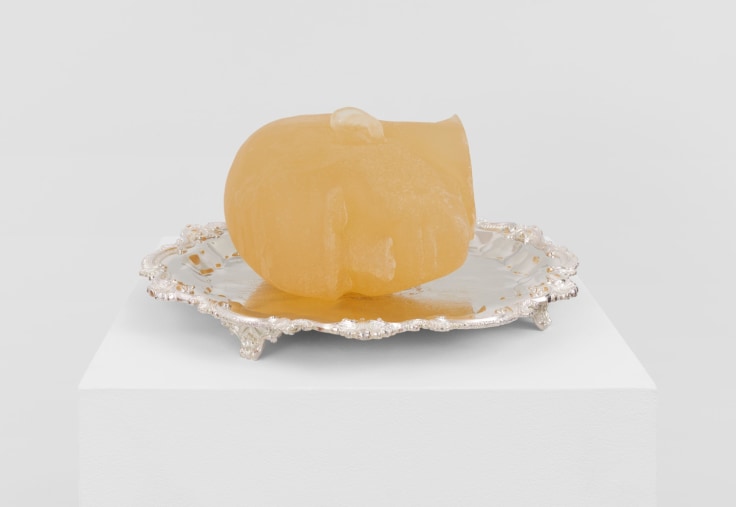
CHRISTOPHER MYERS
Rather Bright Complexion, 2022
Cast palm oil soap on a silver plate
6 1/2 x 9 x 9 1/2 in. / 16.5 x 22.9 x 24.13 cm (head)
18 in. / 45.7 cm diameter (plate)
JCG13335
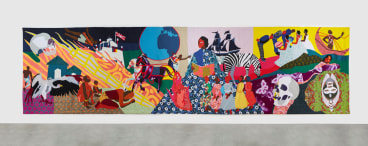
CHRISTOPHER MYERS
Sarah Forbes Bonetta as Omoba Aina as Persephone, 2021
Appliqué textile
108 x 408 in.
274.3 x 1036.3 cm
JCG12553
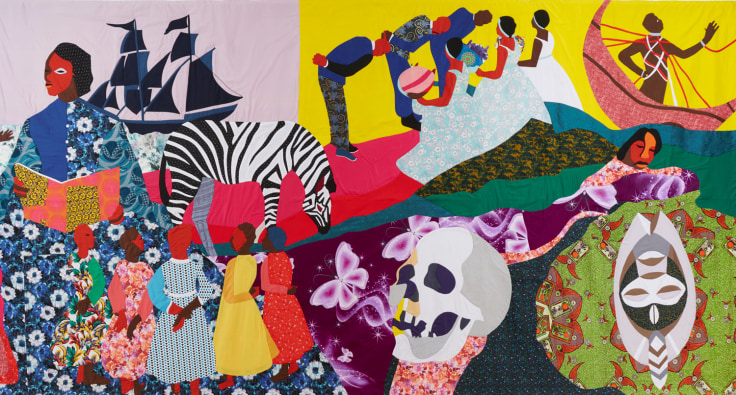
CHRISTOPHER MYERS
Sarah Forbes Bonetta as Omoba Aina as Persephone, 2021 (detail)
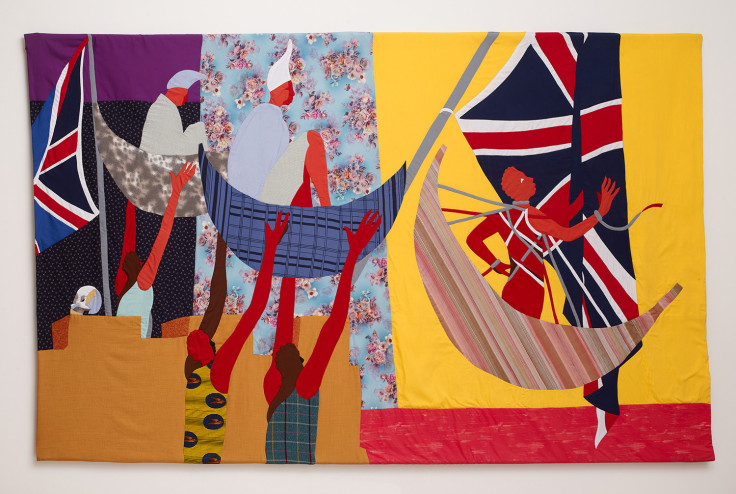
CHRISTOPHER MYERS
Annual Customs of Dahomey, 2021
Appliqué textile
84 x 144 in.
213.4 x 365.8 cm
JCG12557
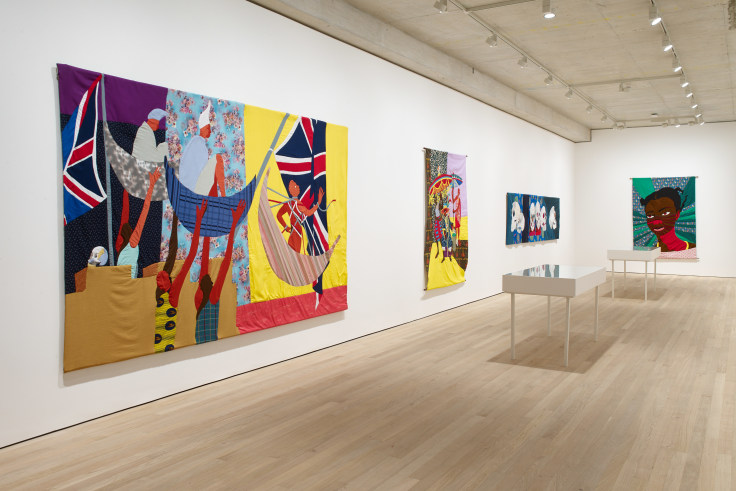
Installation view, Christopher Myers, I Dare Not Appear, Frieze No. 9 Cork Street, London, United Kingdom, October 7 - October 23, 2021
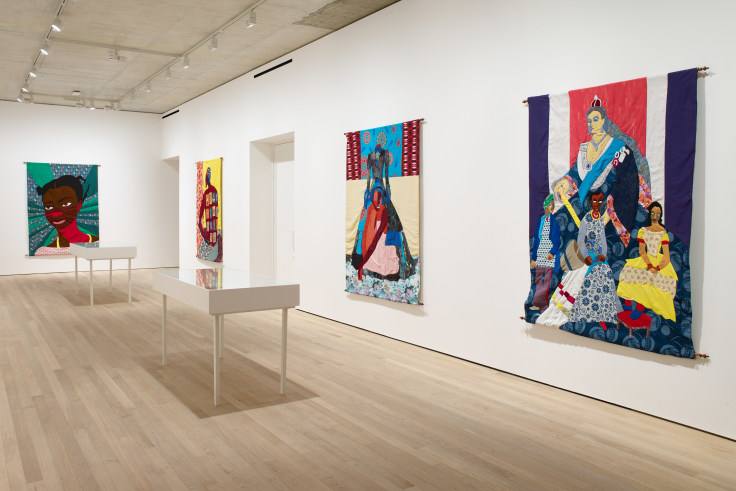
Installation view, Christopher Myers, I Dare Not Appear, Frieze No. 9 Cork Street, London, United Kingdom, October 7 - October 23, 2021
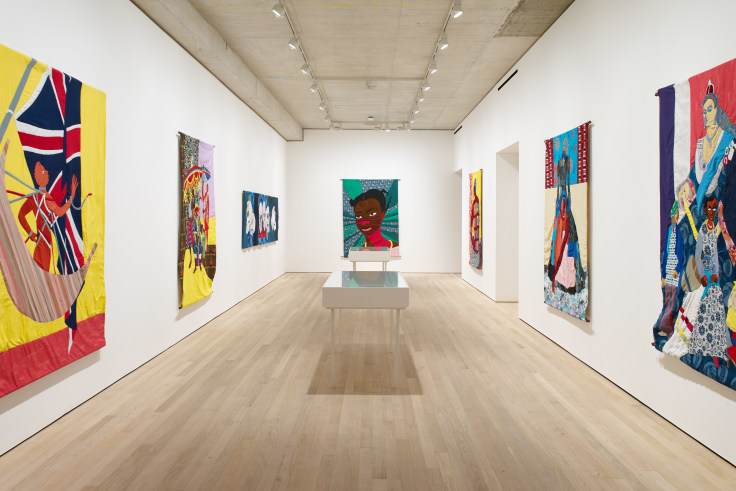
Installation view, Christopher Myers, I Dare Not Appear, Frieze No. 9 Cork Street, London, United Kingdom, October 7 - October 23, 2021
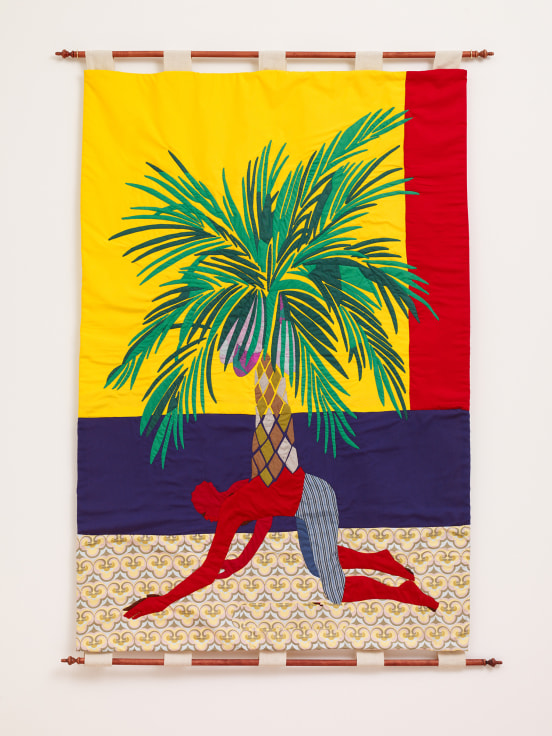
CHRISTOPHER MYERS
Lusanga (formerly Leverville), 2021
Appliqué textile
72 x 48 in.
182.9 x 121.9 cm
JCG12552
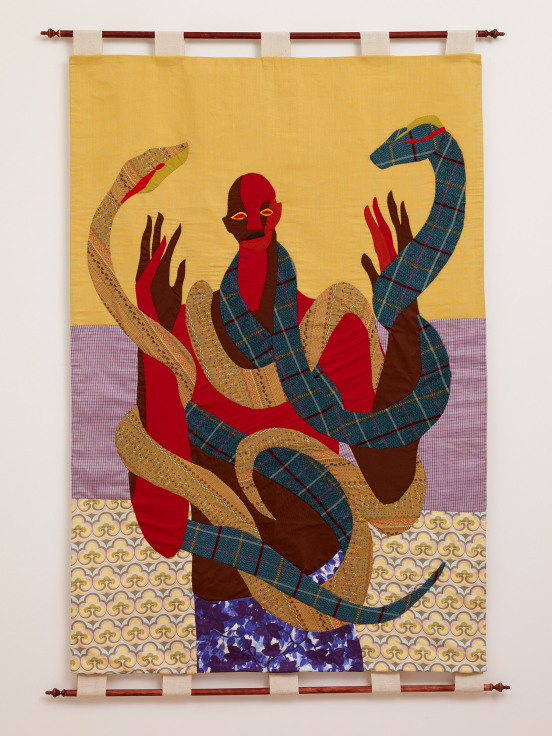
CHRISTOPHER MYERS
The Fetish Man, 2021
Appliqué textile
72 x 48 in.
182.9 x 121.9 cm
JCG12556
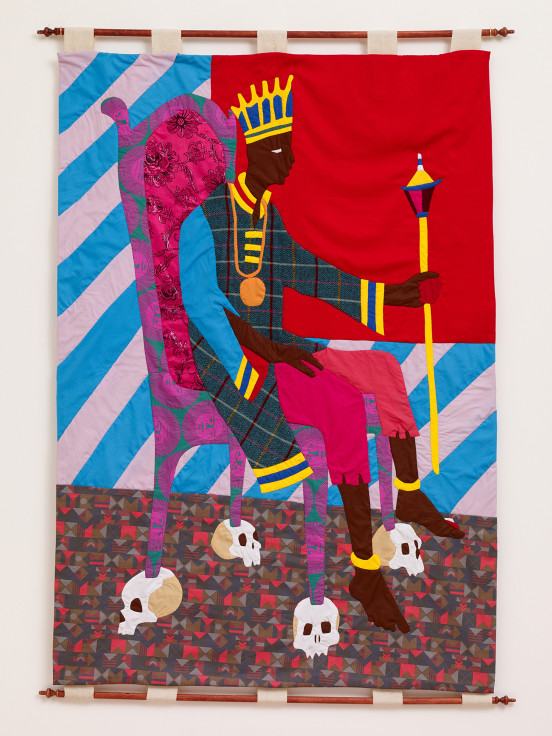
CHRISTOPHER MYERS
Ghezo's Throne, 2021
Appliqué textile
72 x 48 in.
182.9 x 121.9 cm
JCG12954
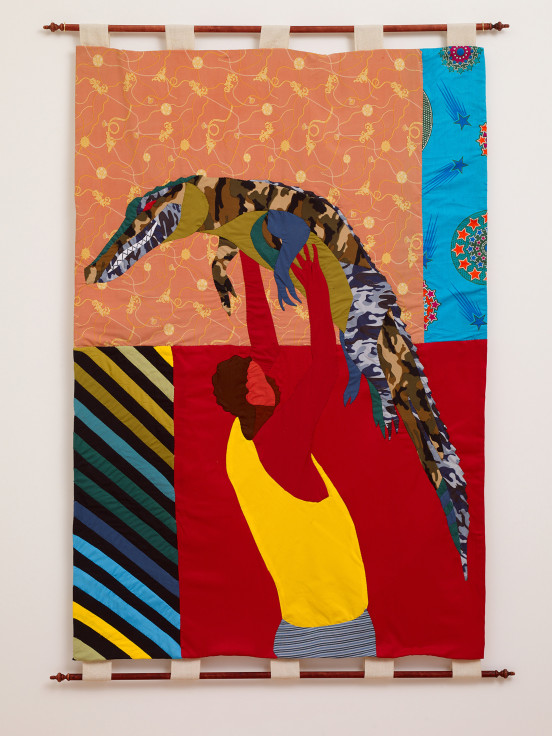
CHRISTOPHER MYERS
The Platform of the Ah-Toh, 2021
Appliqué textile
72 x 48 in.
182.9 x 121.9 cm
JCG12546
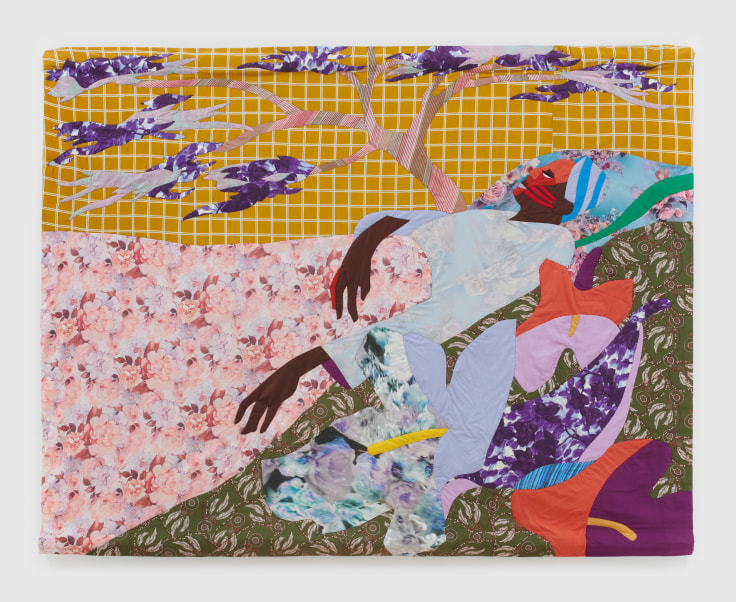
CHRISTOPHER MYERS
Serenity of her Noble Aspect, 2021
Appliqué textile
56 2/5 x 72 in.
143.3 x 182.9 cm
JCG12951
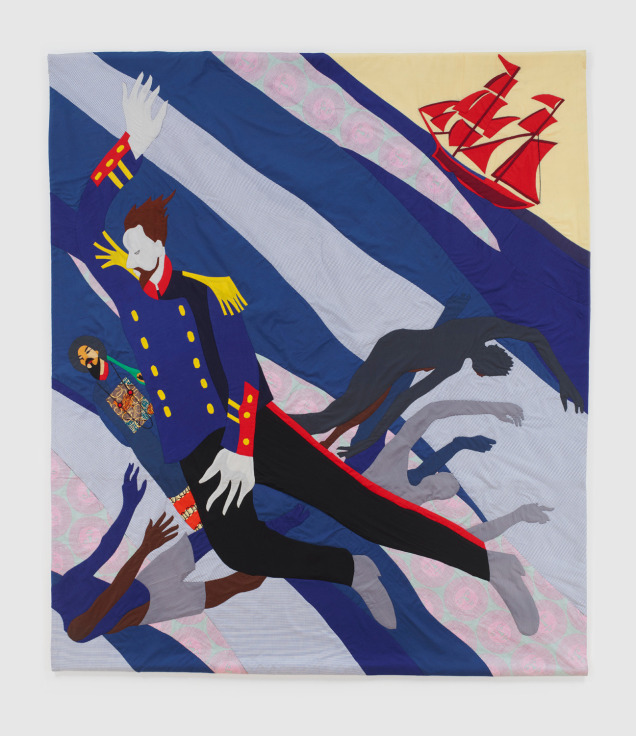
CHRISTOPHER MYERS
The Burial At Sea of Frederick E. Forbes, 2021
Appliqué textile
81 3/5 x 72 in.
207.3 x 182.9 cm
JCG12545
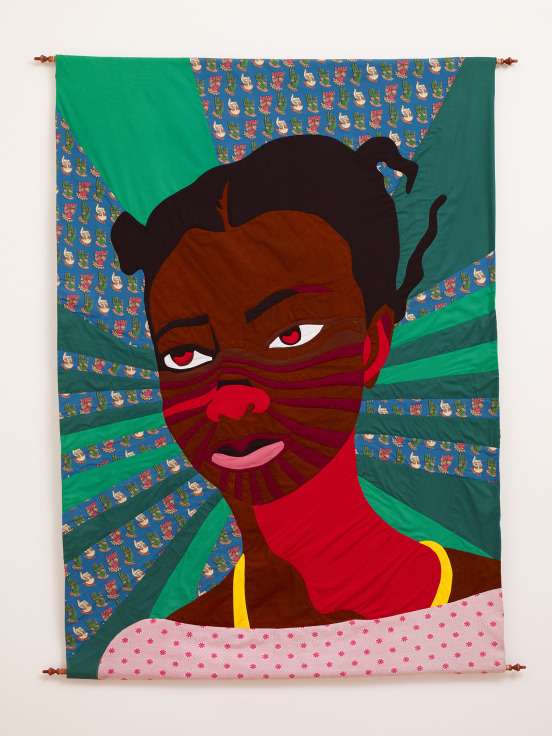
CHRISTOPHER MYERS
Scars, 2021
Appliqué textile
84 x 60 in.
213.4 x 152.4 cm
JCG12554
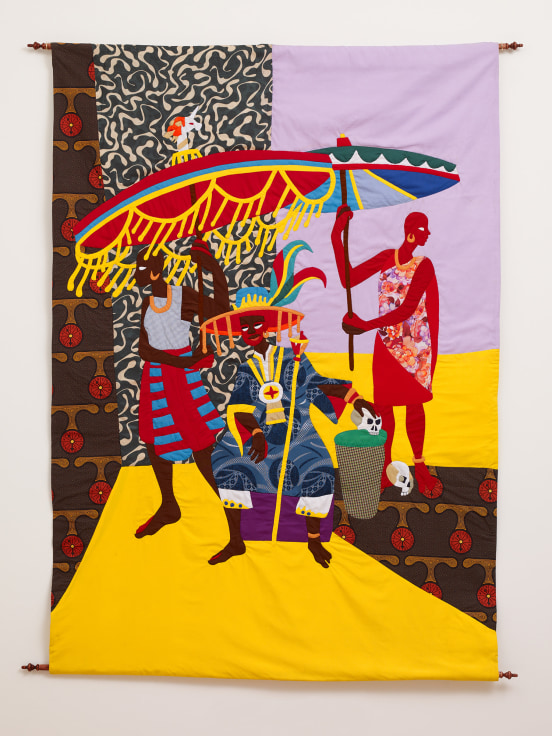
CHRISTOPHER MYERS
King Ghezo, 2021
Appliqué textile
84 x 60 in.
213.4 x 152.4 cm
JCG12550
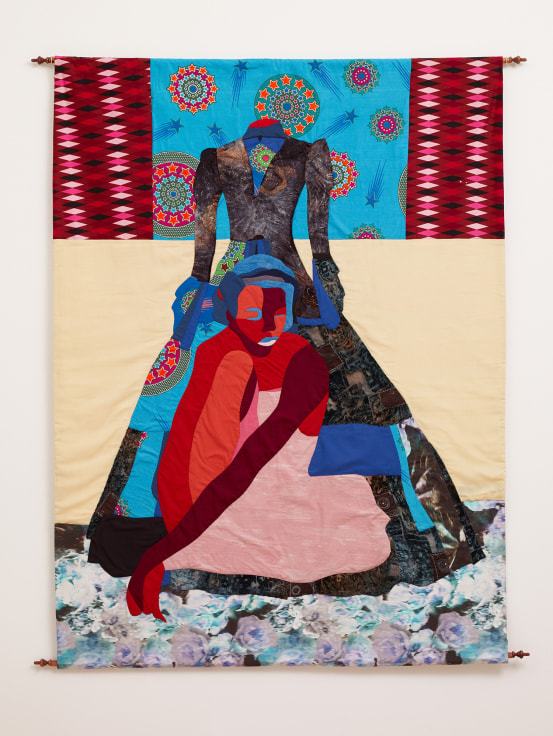
CHRISTOPHER MYERS
I Dare Not Appear, 2021
Appliqué textile
81 3/5 x 60 in.
207.3 x 152.4 cm
JCG12548
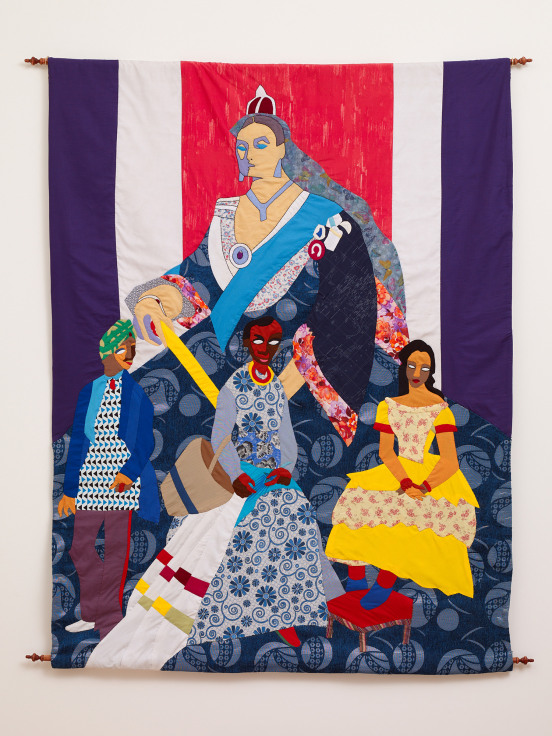
CHRISTOPHER MYERS
At Her Majesty's Pleasure, 2021
Appliqué textile
78 x 60 in.
198.1 x 152.4 cm
JCG12544
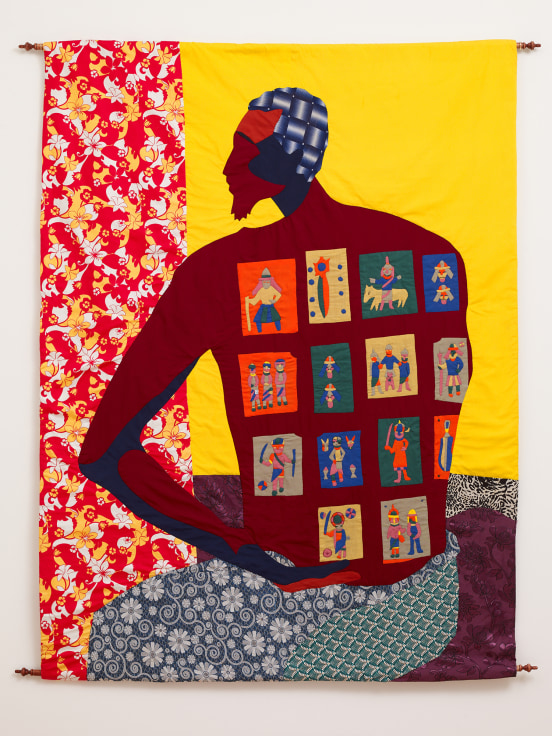
CHRISTOPHER MYERS
Whipped Peter and the Bronzes, 2021
Appliqué textile
78 x 60 in.
198.1 x 152.4 cm
JCG12558
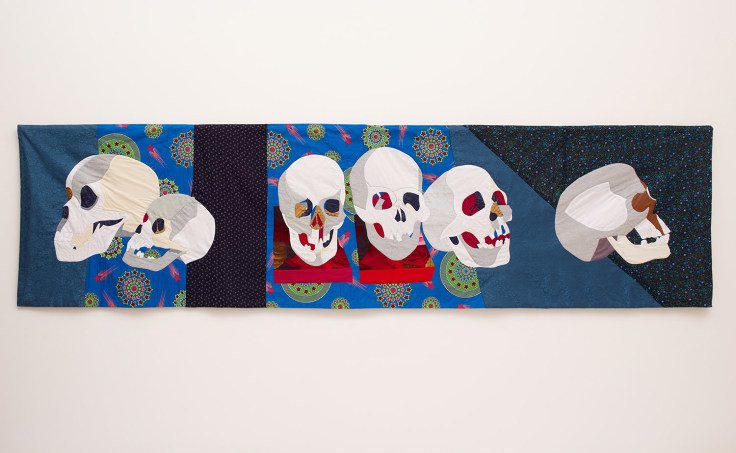
CHRISTOPHER MYERS
My Head Belongs to the King, 2021
Appliqué textile
42 x 156 in.
106.7 x 396.2 cm
JCG12555
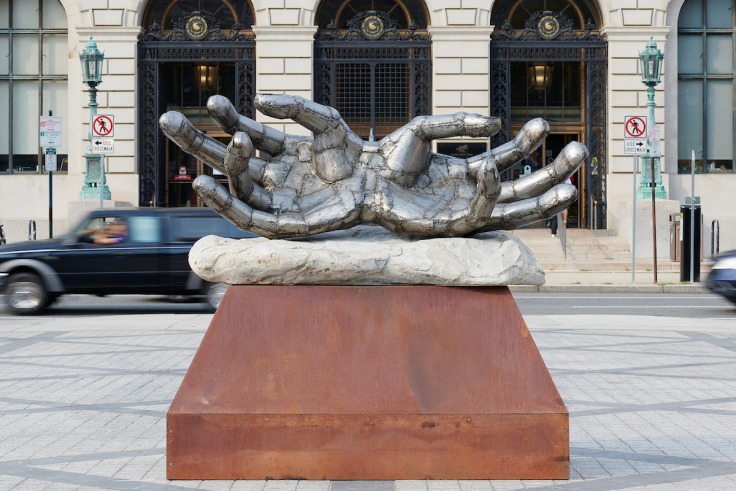
Installation view, Christopher Myers, Caliban’s Hands, Shakespeare Park, Central Branch of the Free Library of Philadelphia, as part of Monumental Tour, organized by Kindred Arts and Philadelphia Parks & Recreation, September 22, 2021 - January 30, 2022. Photo by Albert Yee
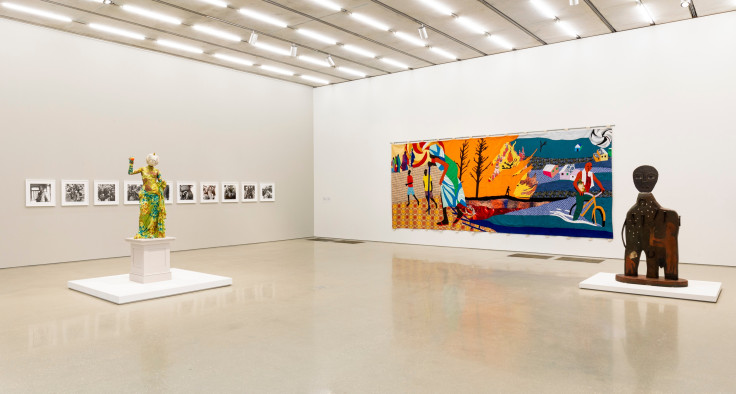
Installation view, Christopher Myers, Allied with Power: African and African Diaspora Art from the Jorge M. Pérez Collection, Pérez Art Museum Miami, November 7, 2020 – February 6, 2022,
Photo: Oriol Tarridas
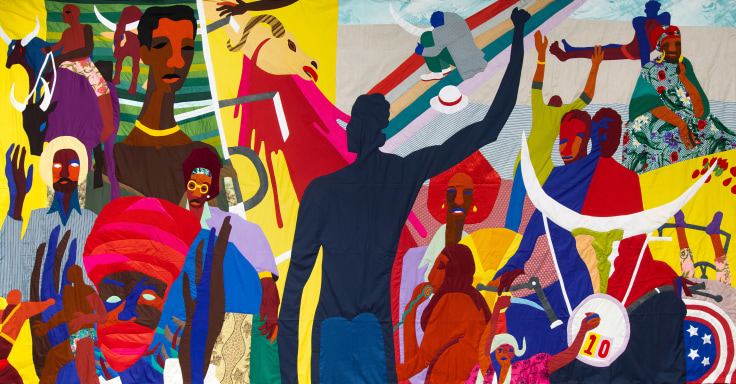
CHRISTOPHER MYERS
A Story Falls Into The Ocean (Based on the film, Touki Bouki), 2020
Appliqué textile
120 x 240 in.
304.8 x 609.6 cm
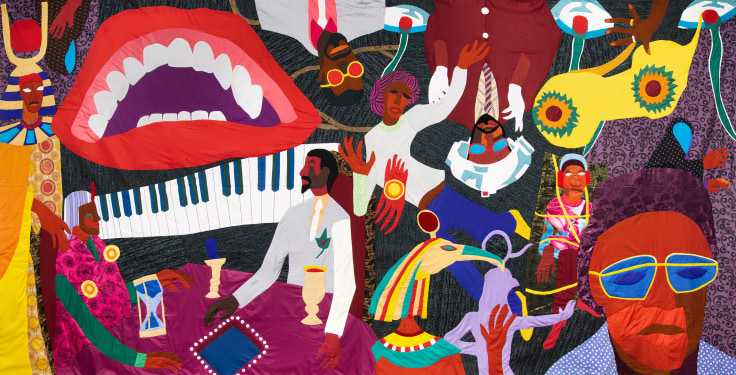
CHRISTOPHER MYERS
We Hold This Myth To Be Potential (Based on the film, Sun Ra Space Is The Place), 2020
Appliqué textile
120 x 240 in.
304.8 x 609.6 cm
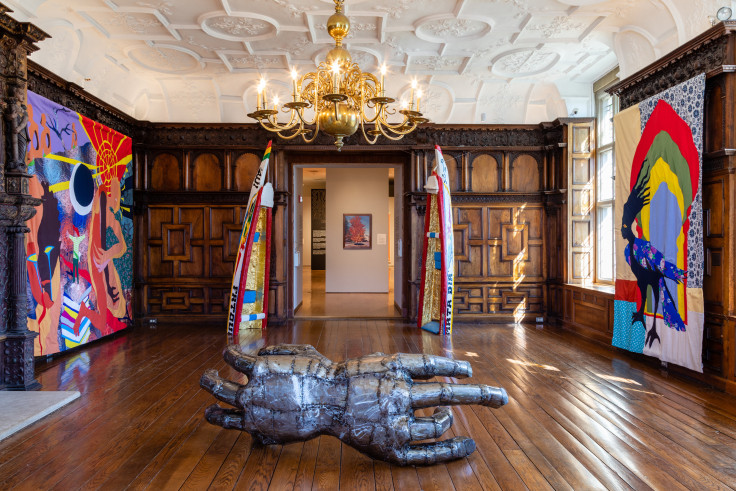
Installation view, Christopher Myers, Rotherwas Project 5: The Red Plague Rid You for Learning Me Your Language, Mead Art Museum, Amherst College, Amherst, MA, September 10, 2019 - March 15, 2020
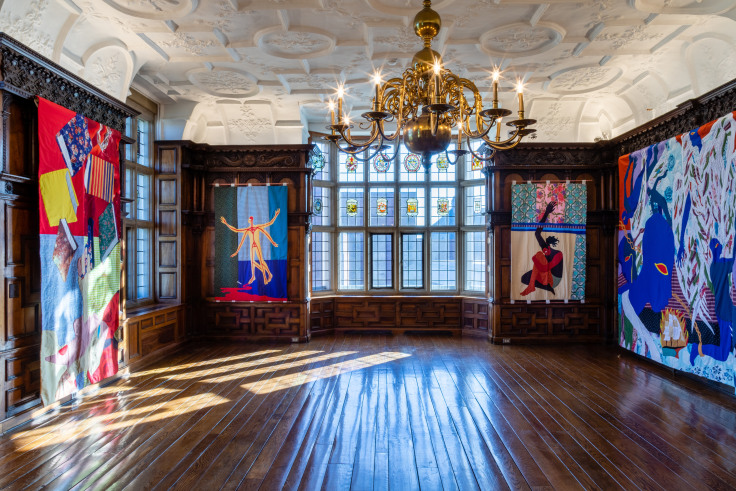
Installation view, Christopher Myers, Rotherwas Project 5: The Red Plague Rid You for Learning Me Your Language, Mead Art Museum, Amherst College, Amherst, MA, September 10, 2019 - March 15, 2020
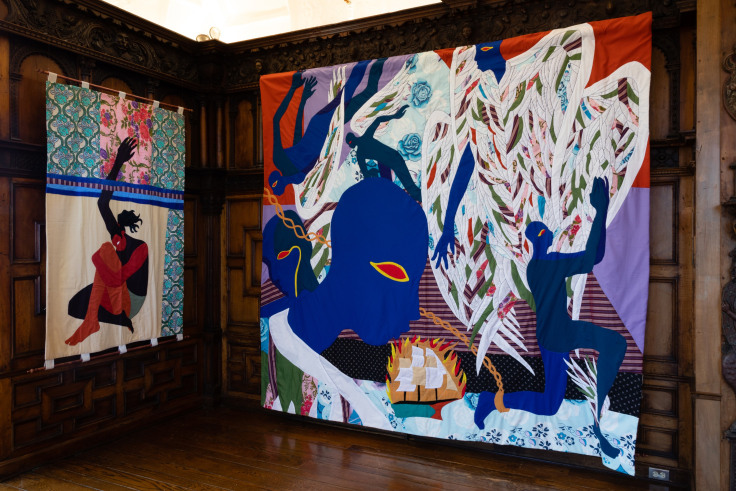
Installation view, Christopher Myers, Rotherwas Project 5: The Red Plague Rid You for Learning Me Your Language, Mead Art Museum, Amherst College, Amherst, MA, September 10, 2019 - March 15, 2020
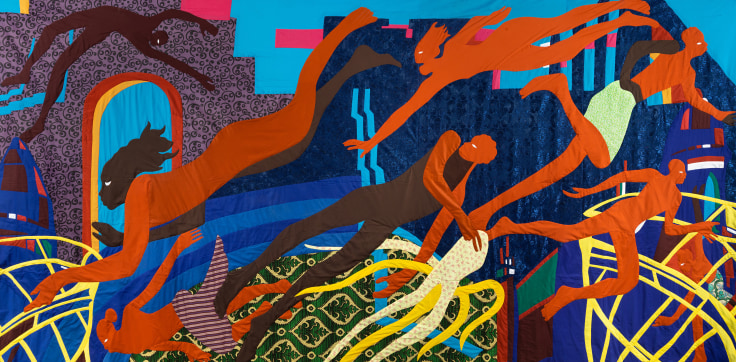
CHRISTOPHER MYERS
Drexciya, 2020
Appliqué textile
120 x 240 in.
304.8 x 609.6 cm
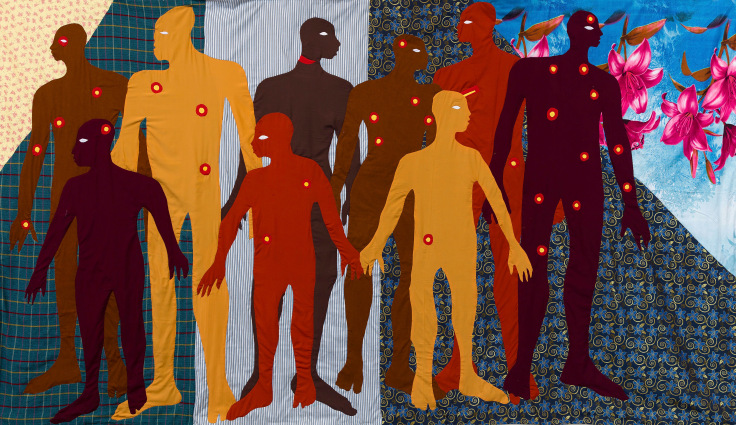
CHRISTOPHER MYERS
What Does It Mean to Matter (Community Autopsy), 2019
Cotton appliquéd on furnishing and specialty fabrics
96 x 168 in.
243.8 x 426.7 cm
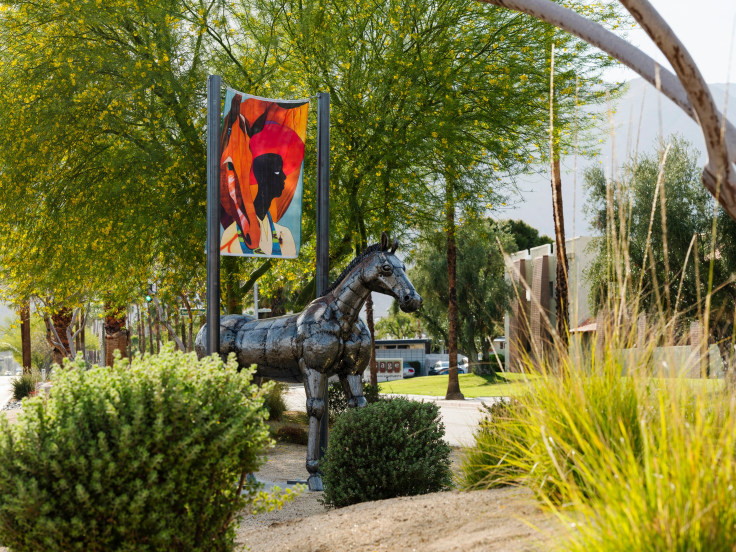
Installation view, Christopher Myers, The Art of Taming Horses, 2021, Desert X, Palm Springs, CA, March 12 - July 6, 2021
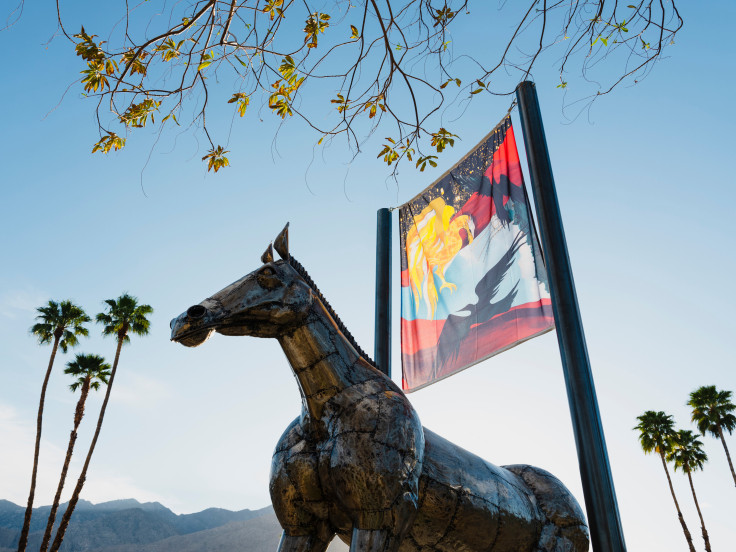
Installation view, Christopher Myers, The Art of Taming Horses, 2021, Desert X, Palm Springs, CA, March 12 - July 6, 2021
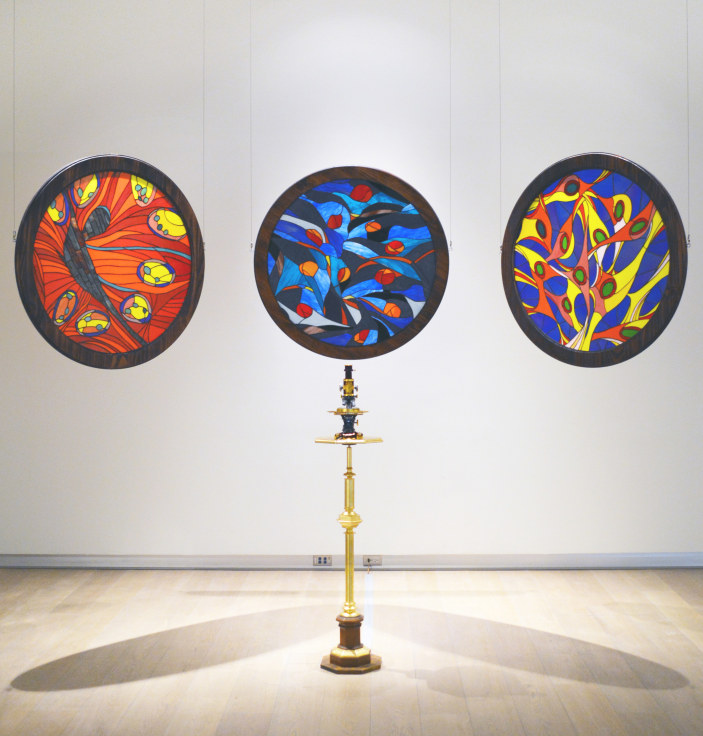
CHRISTOPHER MYERS
Fourth Class Relic: A Chapel for Henrietta Lacks, 2018
Velvet and gold microscope, HeLa cells, stained glass, wood
36 in. diameter (each)
91.4 cm diameter (each)
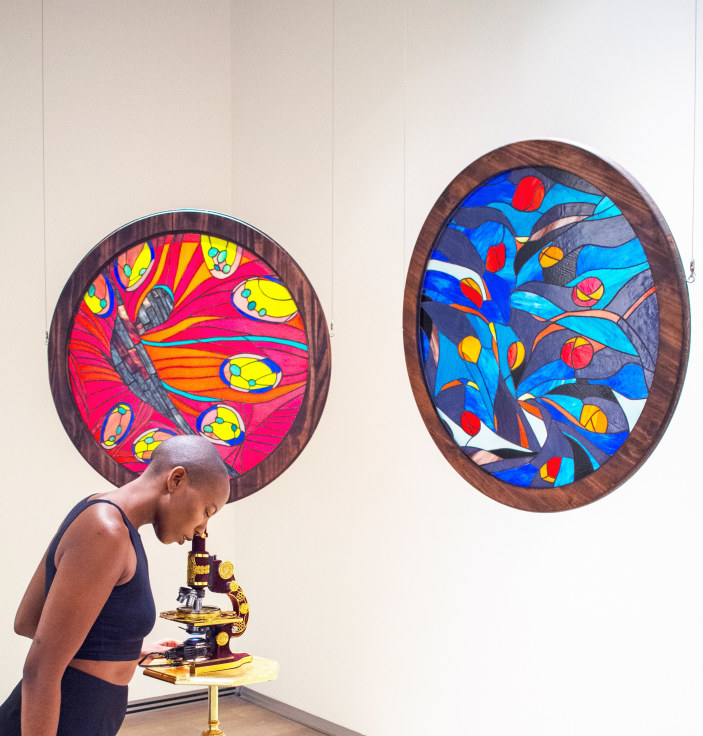
CHRISTOPHER MYERS
Fourth Class Relic: A Chapel for Henrietta Lacks, 2018
Velvet and gold microscope, HeLa cells, stained glass, wood
36 in. diameter (each)
91.4 cm diameter (each)
JCG12587
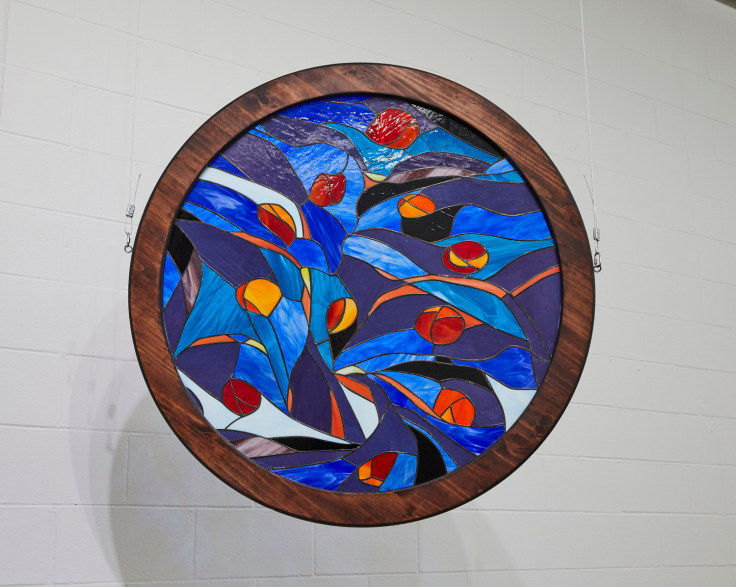
CHRISTOPHER MYERS
Fourth Class Relic: A Chapel for Henrietta Lacks, 2018 (detail)
Velvet and gold microscope, HeLa cells, stained glass, wood
36 in. diameter (each)
91.4 cm diameter (each)
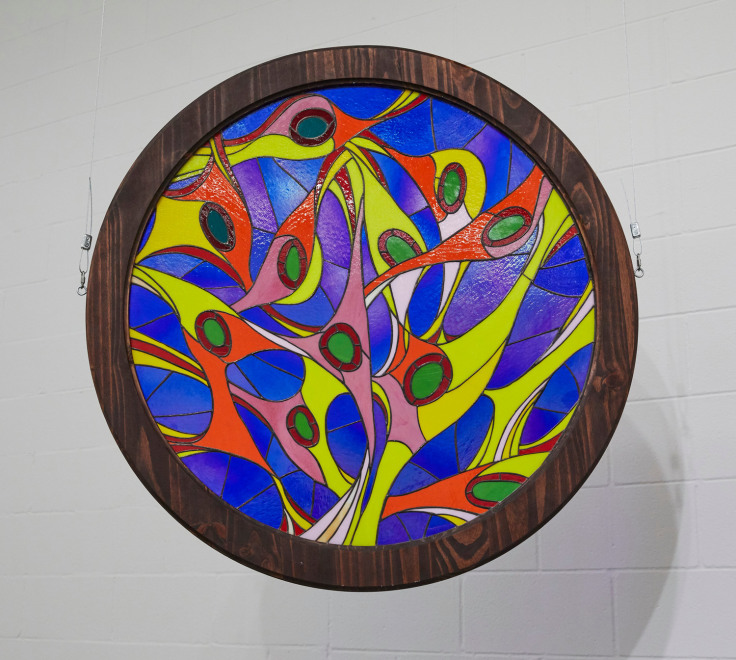
CHRISTOPHER MYERS
Fourth Class Relic: A Chapel for Henrietta Lacks, 2018 (detail)
Velvet and gold microscope, HeLa cells, stained glass, wood
36 in. diameter (each)
91.4 cm diameter (each)
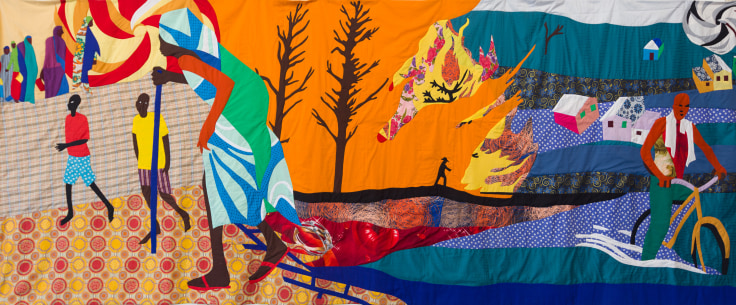
CHRISTOPHER MYERS
How to Name a Famine, a Fire, a Flood, 2019
Appliqué fabric
96 x 240 in.
243.8 x 609.6 cm
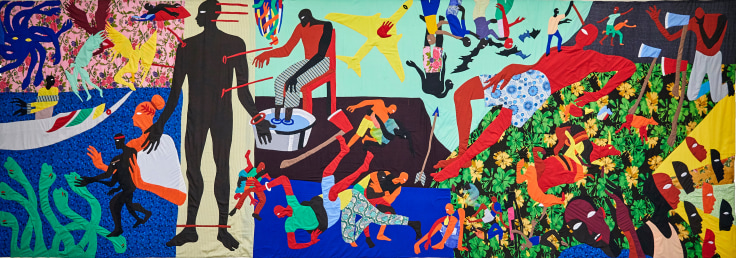
CHRISTOPHER MYERS
Odyssey 4, 2019
Appliqué textile
120 x 360 in.
304.8 x 914.4 cm
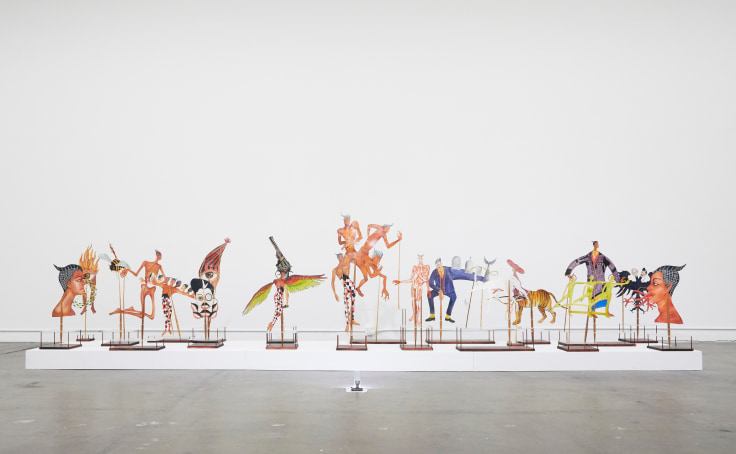
Installation view, Christopher Myers: Nobody is My Name, The Mistake Room, Los Angeles, CA, February 12 - March 23, 2019
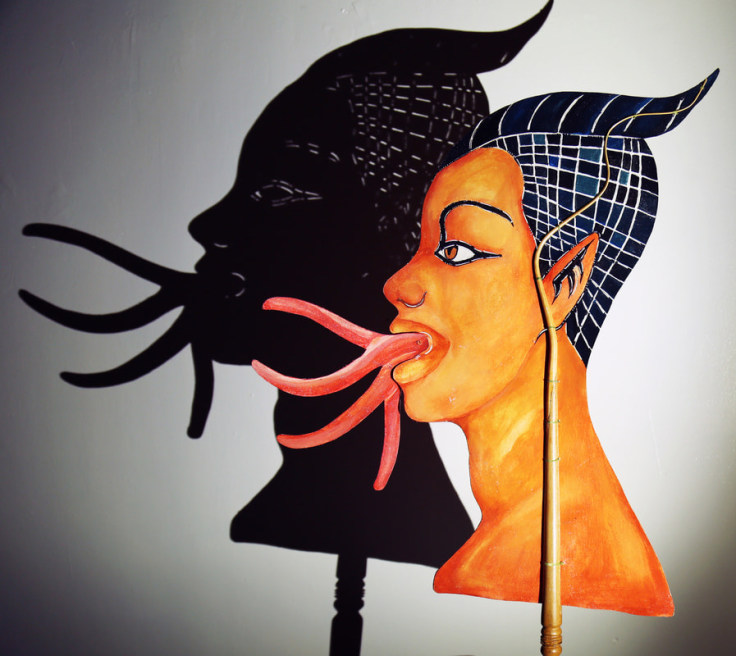
CHRISTOPHER MYERS
Fire In The Head (Nijinsky's Diaries), 2015
Traditional Wayang Kulit made of buffalo hide, wood, and pigment
Dimensions variable with installation
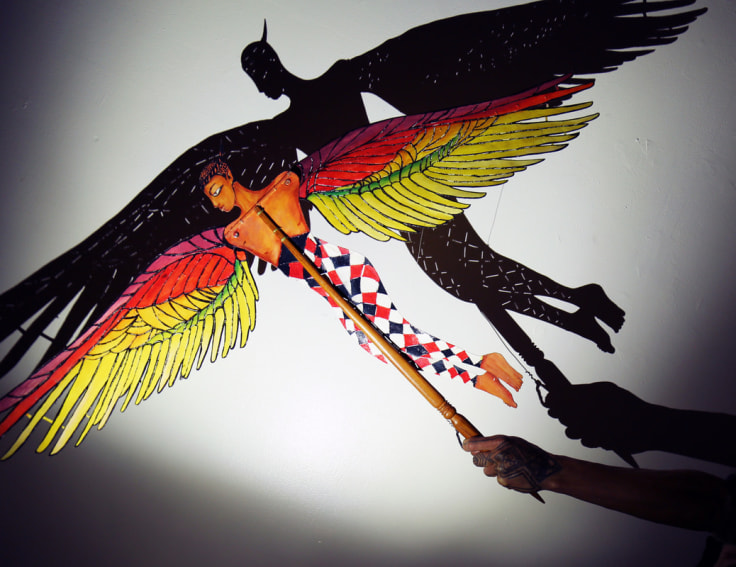
CHRISTOPHER MYERS
Fire In The Head (Nijinsky's Diaries), 2015
Traditional Wayang Kulit made of buffalo hide, wood, and pigment
Dimensions variable with installation
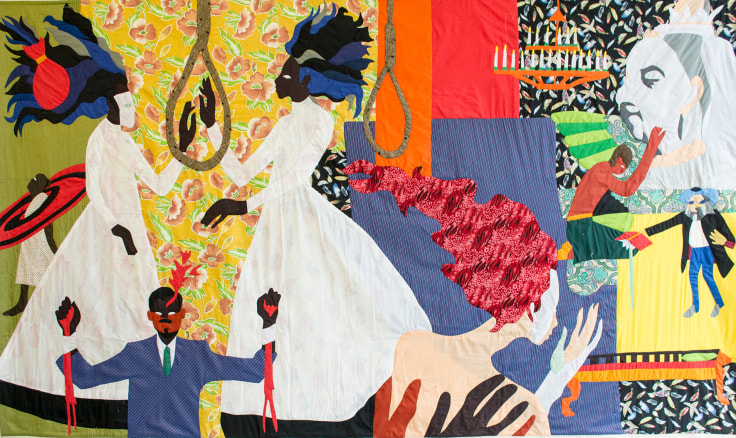
CHRISTOPHER MYERS
Funnyhouse Of A Negro, 2018
Appliqué fabric
84 x 144 in.
213.4 x 365.8 cm
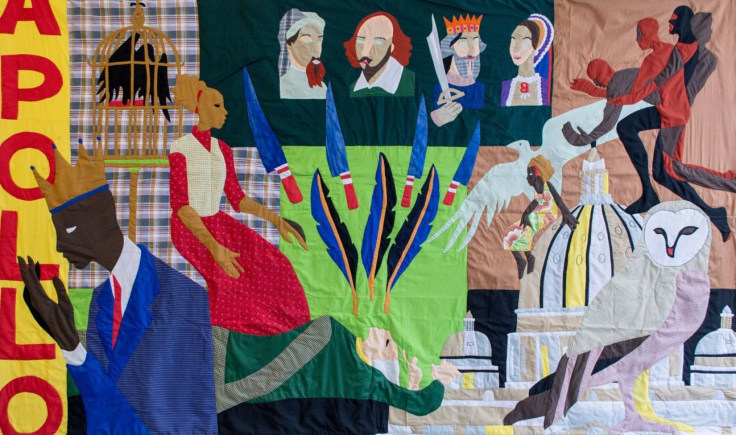
CHRISTOPHER MYERS
The Owl Answers, 2018
Appliqué fabric
84 x 144 in.
213.4 x 365.8 cm
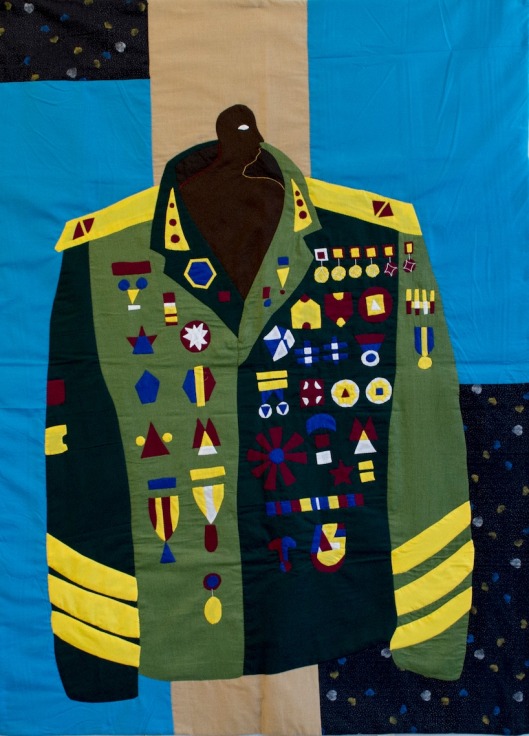
CHRISTOPHER MYERS
Dictator, 2018
Appliqué fabric
72 x 48 in.
182.9 x 121.9 cm
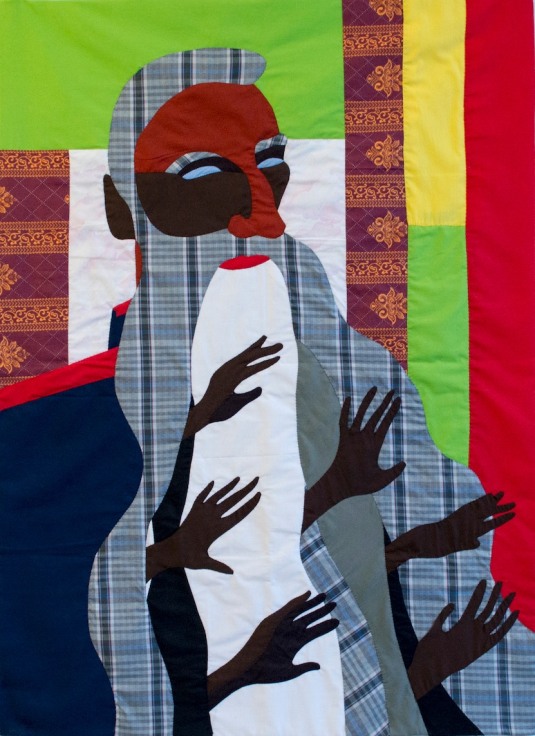
CHRISTOPHER MYERS
Leopold, 2018
Appliqué fabric
72 x 48 in.
182.9 x 121.9 cm
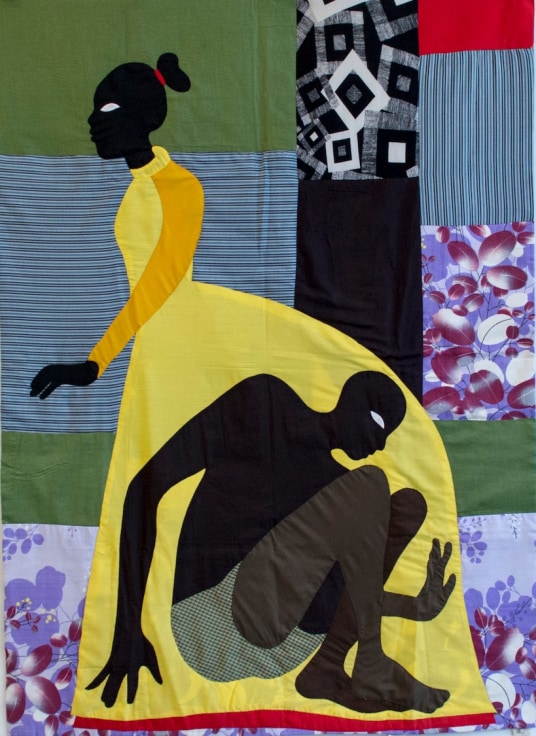
CHRISTOPHER MYERS
Hiding Under Petticoats, 2018
Appliqué fabric
72 x 48 in.
182.9 x 121.9 cm
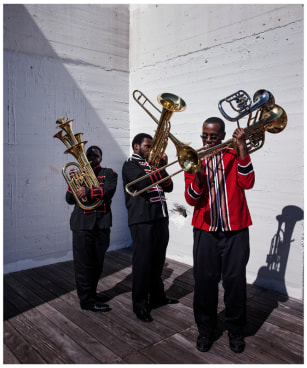
Installation view, Christopher Myers, Echo in the Bones, UNO St. Claude Gallery, Prospect.3: Notes for Now, New Orleans, LA, October 25, 2014 - January 25, 2015
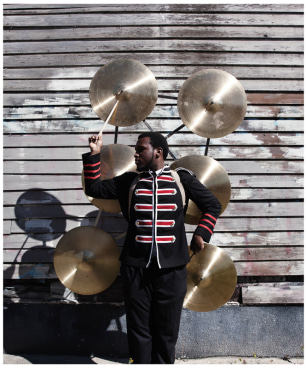
Installation view, Christopher Myers, Echo in the Bones, UNO St. Claude Gallery, Prospect.3: Notes for Now, New Orleans, LA, October 25, 2014 - January 25, 2015
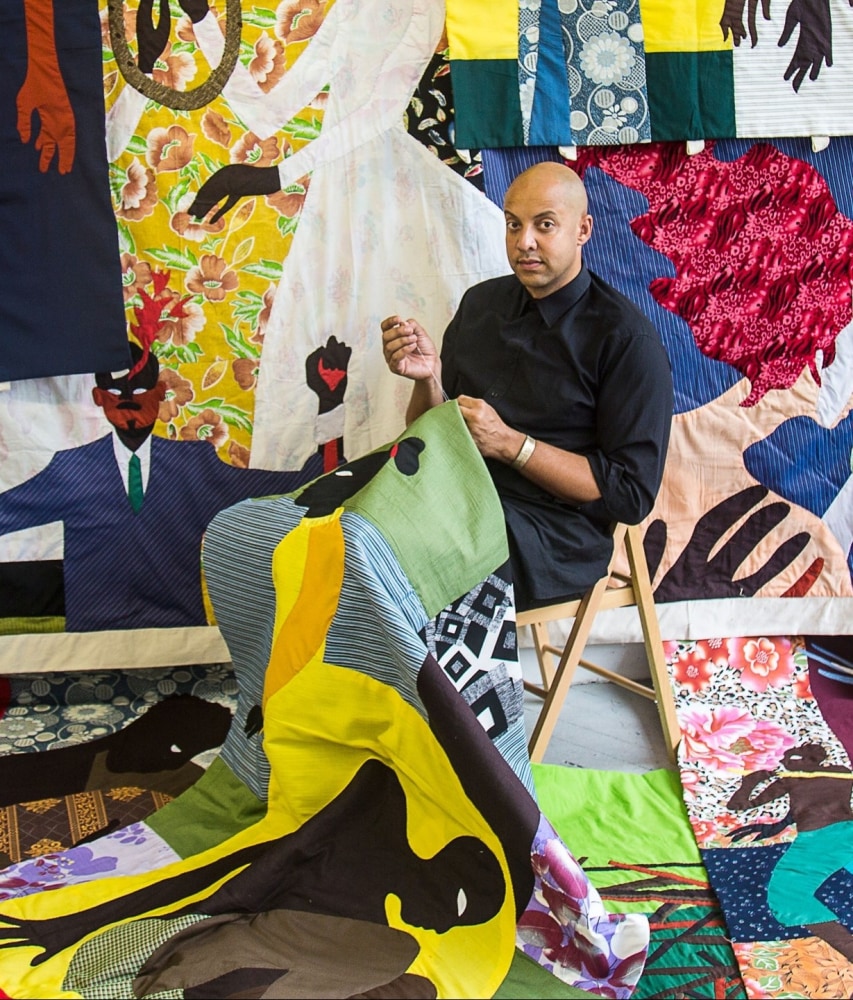
History is the story of where you have come from, mythology is the story of why and where you are going. My work as a storyteller and as an artist centers on pulling mythologies apart from official records. Especially for African-Americans and other marginalized folks, we must learn to read these records for our unwritten histories, to see ourselves in the empty spaces on the page. - Christopher Myers
Christopher Myers is an artist and writer whose work across disciplines is rooted in storytelling. Myers delves into the past to build narratives that speak to the slippages between history and mythology. His diverse practice spans textiles, performance, film, and sculptural objects, often created in collaboration with artisans from around the globe. He has worked with traditional shadow puppet makers in Jogjakarta, silversmiths in Khartoum, conceptual video artists in Ho Chi Minh City, young musicians in New Orleans, woodcarvers in Accra, weavers in Luxor, metal workers in Kenya, and textile printers in Copenhagen. These collaborations are driven by his interest in understanding the ways in which globalization is intimately intertwined with notions of self and community.
Myers is part of a lineage of artists for whom the seemingly domestic and ornamental quality of the tapestry belies a rich tradition of radical craft. This medium has created physical space and pathways for resistance and liberation within the handmade object. In his ongoing series of textile works, Myers uses appliqué, a technique that appears often in quilting and banner making, and has developed as a tangible union of diverse cultural and visual practices—African, European, and American. Working with a community of artisans in Luxor, Egypt, Myers has created tapestries with textiles as varied as 70-year-old sailcloth, Nigerian wedding lace, World Food Programme grain sacks, and cotton harvested in Xinjiang and printed in Vietnam. He works with materials that hold histories—of movement, migration, and exchange—within them.
Each of Myers’ artworks highlights extraordinary histories and contexts, translating careful research into evocative material form. One recent monumental tapestry, What Does It Mean to Matter (Community Autopsy), 2019, depicts the abstracted figures of nine victims of police violence, yellow and red fabric targets indicating wounds mapped by forensic autopsy diagrams. The Talented Tenth and the Beauty of Statistics, 2019, transforms the data visualization created by WEB DuBois and his team of Black sociologists for the Paris Exposition of 1900 into abstract geometric appliqué. His ongoing series, Vxllrncgnt (Vexillarum incognito), 2018 - present, drawn from the traditional Asafo flags of Ghana, conceives of flags for nations that have yet to be born and social structures that will never come to be. Myers’ sculptural oeuvre similarly fuses the imaginary with the specificity of the local. The Art of Taming Horses, a new site-specific commission for the 2021 edition of Desert X, subverts the archetypal language of the equestrian monument to pay homage to a community rather than a heroic individual.
A playwright as well as a visual artist, Myers has an enduring interest in the theatrical. Myers notes of his multidisciplinary practice, “I am interested in speaking as many languages as possible to reach as many people as possible.”
Working with longtime collaborator Kaneza Schaal, Myers has designed theater that has traveled from PS122 in New York City to the Genocide Memorial Theater in Kigali, Rwanda. Major recent projects include Fire in the Head: The Journals of Vaslav Nijinsky, an evening-length theatrical work conceived, designed, and directed by Myers, which premiered at the FIAF-French Institute Alliance Française’s Crossing the Line Festival in late 2021, and King Leopold II, co-directed by Myers and Schaal and designed by Myers, which premiered at the Walker Art Center in January 2022. He has collaborated with Hank Willis Thomas on a short film Am I Going Too Fast, which premiered at Sundance, and has written essays that have been published by The New York Times. Currently, he is working on a book comparing global censorship methodologies.
Christopher Myers (b. New York City in 1974) earned his B.A. in Art-Semiotics and American Civilization with a focus on race and culture from Brown University in 1995 and participated in the Whitney Museum of American Art Independent Studio Program in 1996. His recent solo exhibition Christopher Myers: of all creatures that can feel and think, was on view at the Blaffer Art Museum in Houston from May 20 through September 3, 2023. Myers will be featured in the upcoming 24th Biennale of Sydney in 2024. His work has been exhibited throughout the United States and internationally at venues including MoMA PS1; Art Institute of Chicago; The Mistake Room, Guadalajara, Mexico; Akron Art Museum; Contrast Gallery, Shanghai; Goethe-Institut, Accra, Ghana; Kigali Genocide Memorial Center, Rwanda; San Art, Ho Chi Minh City, Vietnam, and the Studio Museum in Harlem. Myers is currently working on a Percent for Art Commission at the Brooklyn Brownsville Public Library, expected to be completed in 2023. His work is included in the permanent collections of institutions including the National Gallery of Art, Washington, D.C.; Brooklyn Museum, New York; Museum of Contemporary Art Chicago; Los Angeles County Museum of Art; Lucas Museum of Contemporary Art, Los Angeles; Mead Art Museum, Amherst, MA; Nasher Museum at Duke University, Durham, NC, and the Studio Museum in Harlem. Myers won a Caldecott Honor in 1998 for his illustrations in the book Harlem and a Coretta Scott King Award in 2016 for illustrating Firebird with Misty Copeland. Myers currently lives and works in Brooklyn, NY.
